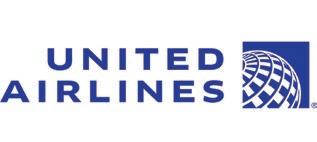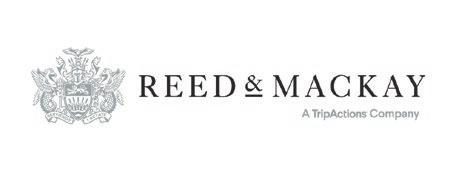



























































































































































19 Air Travel Overview: Latest innovations aimed at business passengers
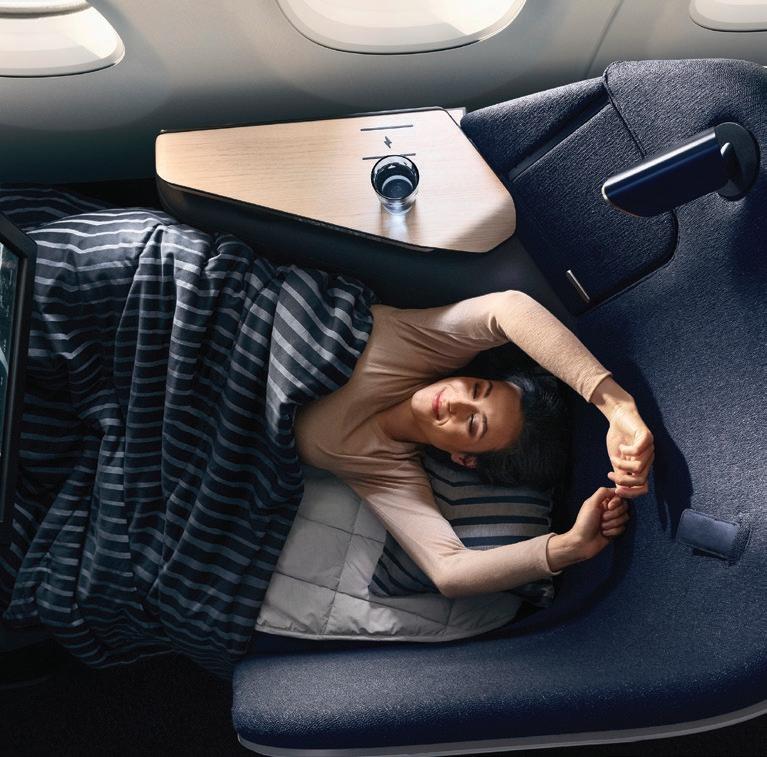
28 Sustainable Aviation: The fight to decarbonise flying
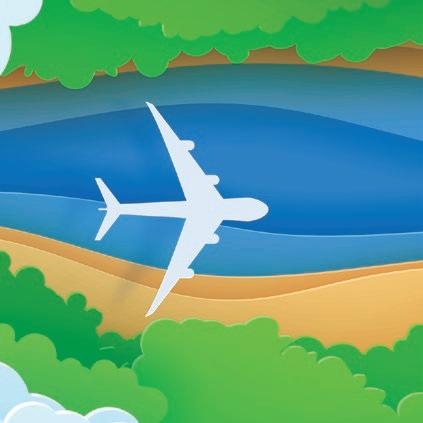
32 Airfare trends: Three experts try to predict pricing in a volatile world
36 People Awards: All the photos from this year's ceremony and details about what's coming in 2023
44 Business Travel Ambassadors: Meet just some of the people who have joined our new campaign to help find future talent
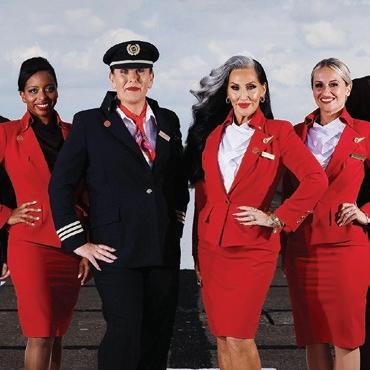
6 Opening Shots: The most exciting openings in the world of travel – in pictures
8 Everyone's Talking About: IACO's 2050 net zero emissions goal

10 Speaking Out: Valentin Naidja at FREE NOW for Business calls on the industry to find its purpose
12 Ask the Expert: Tammy Morgan, CWT VP Global Market Management, shares tips on policy and compliance
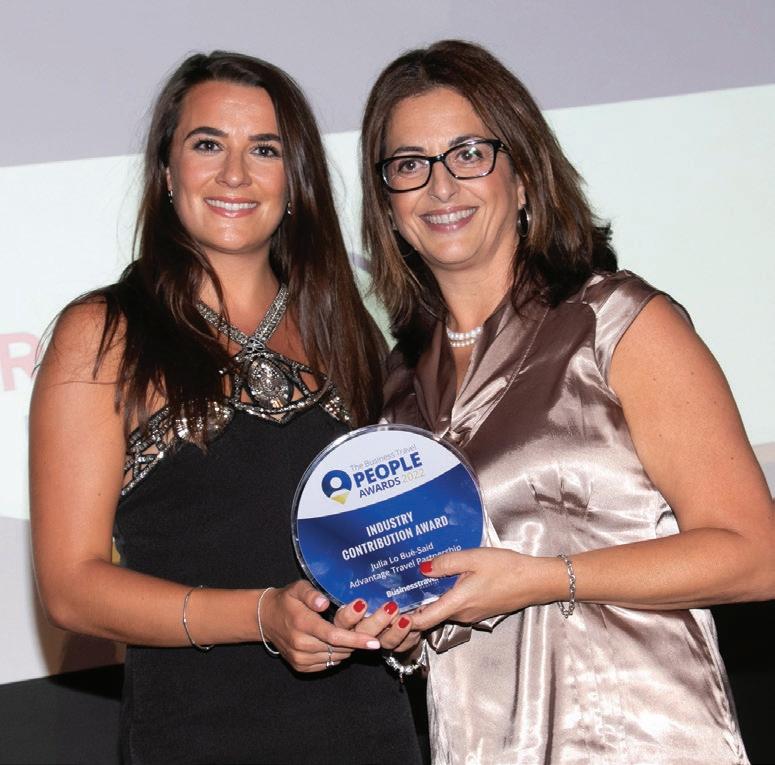


14 Business travel news, views and appointments
46 On Business In: Boston

48 Reality Check: We check in to two hotels, an aparthotel and try Emirates' economy class
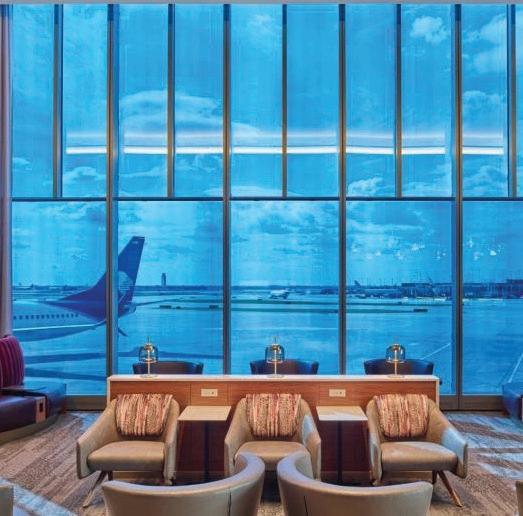
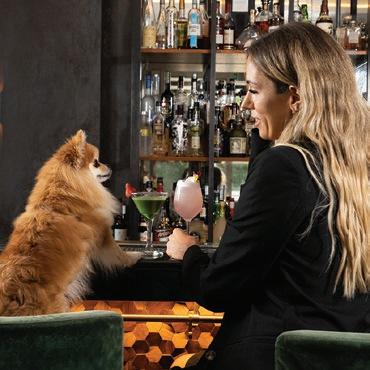
50 Final Word: The quirky side of travel


nyone at this year's Business Travel People Awards will agree that we should feel immensely proud to work in this industry, both for the achievements of its talented people and for its sense of community.
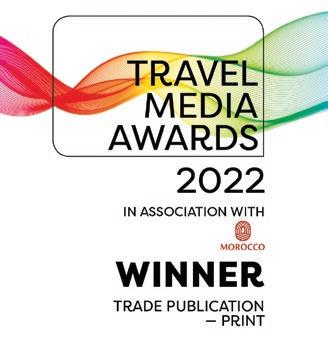
As we all came together to recognise the 2022 finalists, highly commended and winners (see all the photos in our report on pages 36-43), it was particularly encouraging to see so many new faces joining the celebrations for the first time – networking, dancing and collecting awards.
I hope that as a result of our Business Travel Ambassadors campaign, launched at the awards ceremony, we will see even more new faces at the 2023 People Awards on September 25th at London's Grand Connaught Rooms (make a note in your diaries, folks). You can find out more about our campaign and meet some of our amazing ambassadors on pages 44-45. We'll be introducing more ambassadors in the coming weeks on our website and in our newsletter.
Also in this issue, we have an in-depth feature on international air travel, which is coming back in force. On pages 19-34 our expert contributors look at the latest innovations on board and on the ground, update you on aviation's ongoing struggle to decarbonise, and try to predict what's likely to happen to fares as we head into next year.
Congratulations again to all of our People Awards winners. It was an honour to be part of the proceedings. A few weeks later we were also proud to win an award of our own, voted Best Trade Publication Print in the 2022 Travel Media Awards. Thank you for your support this year and here's to more reasons for us all to be proud in 2023.
EDITOR Bev Fearis

CONTRIBUTORS April Waterston, Gill Upton. Julie Baxter & Gary Noakes
DIGITAL EDITOR April Waterston
EDITORIAL DIRECTOR Steve Hartridge
PUBLISHER Kirsty Hicks

DESIGNERS
Matt Bonner and Caitlan Francis
PRODUCTION & STUDIO MANAGER Clare Hunter

ADMINISTRATOR Steve Hunter
Matt Bonner
Martin Steady

In the former head office of Lysverker, Oslo's original electrical company, the Art Deco-style, 231-room Sommerro has seven restaurants and bars, a 100-seat gilded theatre, gym, wellness space, and a year-round rooftop pool and sauna.

Sommerro pays homage to a fusion of neoclassical contemporary aesthetics with original historic elements that have been meticulously restored and developed”Eye-catching images of the latest news and developments
Sommerro, Oslo
The latest addition from the people behind the funky beach clubs, this all-suite urban retreat is tucked away in the Old Town, just around the corner from Puro Group's two other Palma hotels. In a former 15th-century palace, its architectural gems, such as beams, coffered ceilings, arches, and vaults, have been lovingly retained.
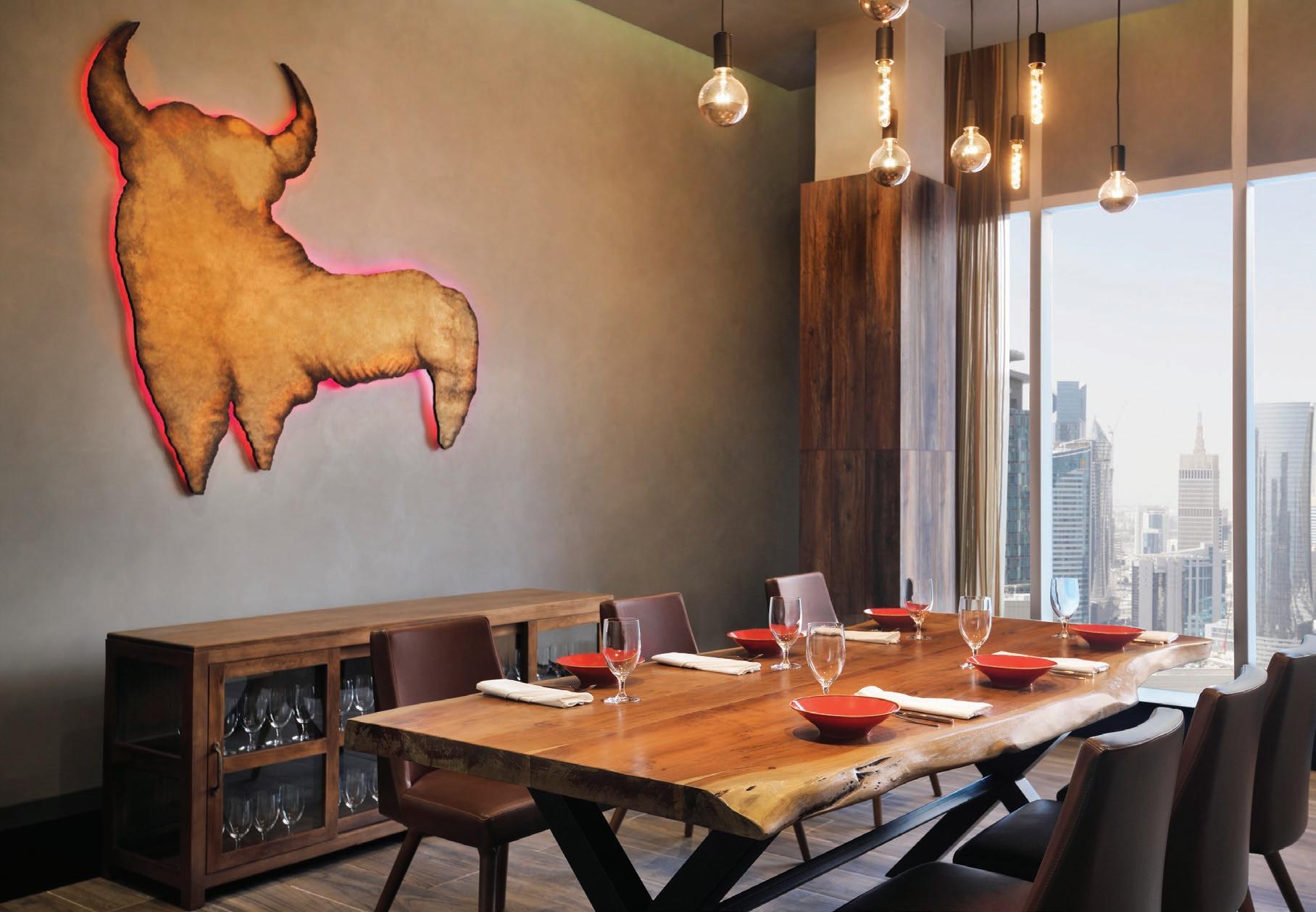

Delta's new Terminal 5 lounge at Chicago O'Hare is four times the size of its former lounge in Terminal 2. Neon art, sculpture and mixed media by local artists adorns the walls of the 2,050 sqm space, which has two buffet counters, a full-service bar, a wine bar, four showers, privacy sound booths, and a family room.
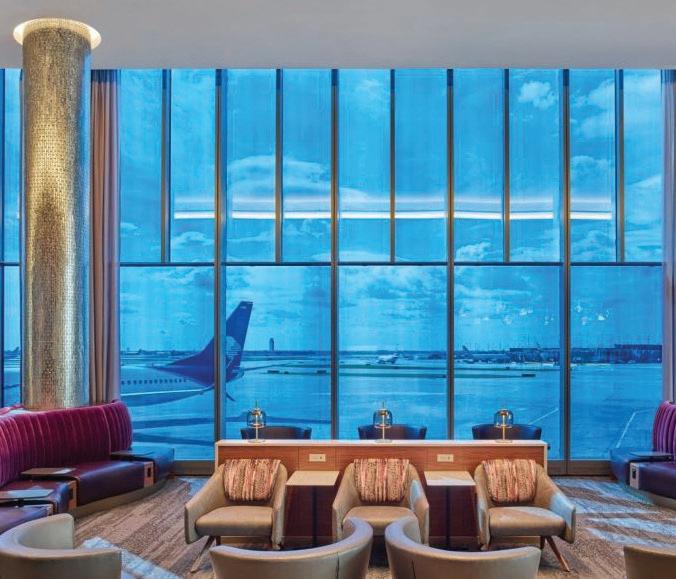
Cityscape or Arabian Gulf views are the choice at this 32-storey hotel in the Qatari capital, with more stunning views to be enjoyed from the Spanish-themed top floor restaurant and bar. The property has 320 rooms, suites and fully serviced apartments, an outdoor pool and fitness centre.


up with zero-emission solutions based on global standards. The longer this takes, the more workers will pay for the resulting deficits”
Setting a goal is one thing. Making it a reality is where the hard work really begins and we need to continue –and accelerate – the efficiency improvements and energy transition that is already underway across the industry”

“To build room for poorer countries to grow their aviation sectors, richer countries will need to peak emissions even faster. So the world will be looking for quick action from wealthier governments like the EU, US, Singapore and the UAE”
Dan Rutherford, Aviation Director, International Council on Clean Transportation
“State S ’ adoption of thi S new long-term goal for decarboni S ed air tran S port, following the S imilar commitment S from indu S try group S , will contribute importantly to the green innovation and implementation momentum which mu S t be accelerated over the coming decade S to ultimately achieve emi SS ion S free powered flight”Salvatore Sciacchitano, President, ICAO Council
“ i t’ S the S tarting gun in a new global race to decarboni S e flight”
Drew Kodjak, Executive Director, International Council on Clean Transportation
” There is loTs of work To do and noT a minuTe To lose “ Willie Walsh, IATA Director General


communicating your purpose will help to create a brand identity that potential candidates – and consumers and buyers –can build positive associations with and loyalty for. Given the current skills shortage across travel and hospitality, this benefit alone should surely be reason enough to get on board.
Purpose. It’s a word that’s been bandied around a lot recently and one that FREE NOW for Business feels strongly about, both for our own company but also for the wider business travel industry.

Purpose is a consumer-driven movement. While Millennials aspire to prestige and money, Gen Z aspires to make change. They want to work for, and buy from, businesses which share their values and deliver them authentically. So to be future-fit, companies must act now.
What does purpose look like? Sportswear brand Patagonia is a brilliant example. In September its billionaire, 83-year-old founder Yvon Chouinard gave the company away to a trust and non-profit, ensuring all future proceeds not reinvested are used to combat climate change. “As of now, Earth is our only shareholder,” he said. “ALL profits, in
perpetuity, will go to our mission to ‘save our home planet’.”








I believe the business travel industry has the potential to be more ethically-focused and purpose-driven. Just look at the progress we’ve made in relation to sustainability. ITM stats now show 67% of business travel buyers consider sustainability when selecting a supplier and 30% prioritise sustainability over cost.











Of course, sustainability is just one element of being a purpose-driven business. Another is DE&I – diversity, equity and inclusion. It’s been proven that a diverse workforce can increase creativity and profitability, but it’s also key for recruitment because, increasingly, potential candidates are prioritising employees with shared values.


Developing, understanding and





I mentioned authenticity earlier and this is key. Any ethical initiatives you adopt must be watertight as customers and employees will call out businesses that fall foul of green-washing and virtue-signalling, as experienced recently by a German airline.
When the war broke out in Ukraine, we knew we had to help as one third of our drivers in Poland are Ukrainian and it also directly impacted our customers. We cover drivers’ fuel costs when they travel to the Polish Ukrainian border to pick up relatives and refugees, and have given over 1,000 free-ride vouchers to individual volunteers and free-ride codes to the Red Cross, Unicef and other on-the-ground NGOs.
As well as raising funds, our teammates in Poland have volunteered around the clock at refugee reception points, ordering free rides for over 200 refugees daily to transport them to temporary accommodation. And, within weeks, we added a widget to the app that lets passengers round up their trip fee to donate to Ukraine, a campaign that has raised €1,000,000 to date.
We’re really proud of all of these initiatives, but we also know we can – and must – do so much more before we can claim to be a fully purpose-driven business and I’m calling on the entire business travel sector to join us to make a bigger difference.
The industry must act now to respond to the aspirations of the next generation, says Valentin Naidja at FREE NOW for Business









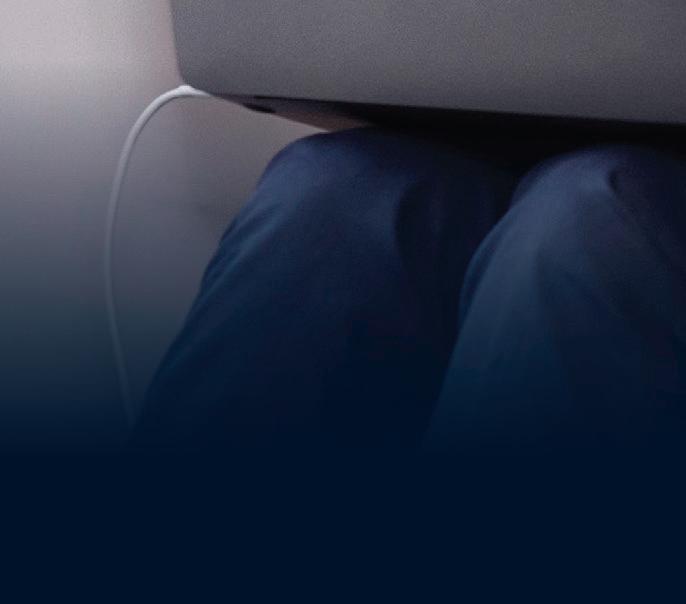

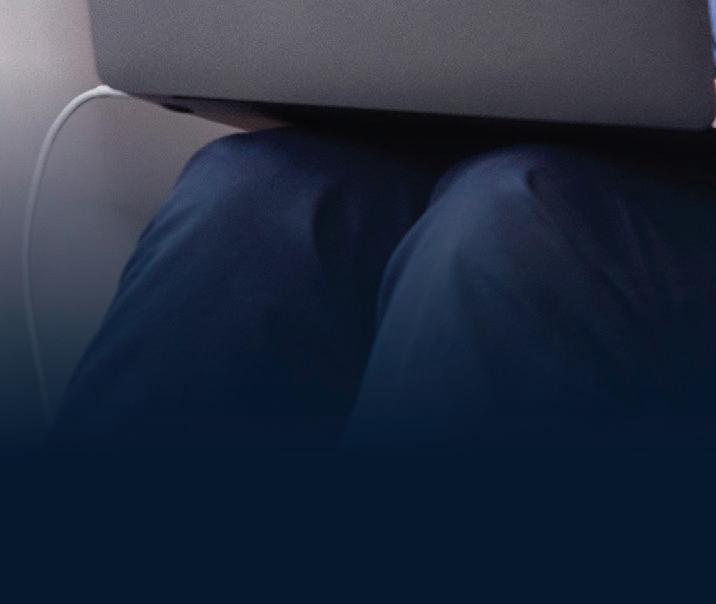










In the pre-travel phase, these and other common areas of leakage can be addressed in the initial set-up of the policy, coupled with effective messaging and guardrails in the booking process. Post booking ensures you have an effective messaging tool in place to address non-compliance and include a governance process if you want to affect change prior to ticketing or travel. Using this data post ticketing and providing visibility to leadership of the outliers can be an effective means after the fact to set ongoing expectations and provide education.
Policies are the foundation on which an organisation can set expectations. However, a policy alone will not drive compliance. First and foremost a policy must be visible and accessible in any channel in which travellers want to have access: desktop, phone, company app, etc. Secondly, it needs to be easily digestible. Overly long and complex policies make compliance more of a challenge. Focus on simplification – a global policy with as few regional nuances as possible, keep it succinct around core policy elements and keep the length of the policy as tight as possible.
Ensure your policy is tightly built into the entire booking process. Consistently programme policy parameters into all available digital channels as well as within the full-service channel. Travellers should not see a difference in how the policy is interpreted or administered regardless of how they are booking travel. Timely data consolidation and review is the next step, both pre and post
ticket, to provide visibility and the ability to communicate and educate travellers. Focus on leakage, compliance by business unit as well as performance by individual travellers. It is vital to have an internal governance structure in place to address non-compliance and set expectations moving forward.
There are a few key areas where policy compliance has historically been a challenge. Individual preferences for a particular supplier can sometimes dictate choice as opposed to company preferences. Additionally hotel leakage in general continues to be an area of focus for most companies.
In today’s travel environment people have learned to be self-sufficient and they rely heavily on digital platforms to provide them with everything they need throughout their journey. Make sure you are meeting them in their space and find ways to drive compliance, whether that’s by messaging directly throughout the booking or travel process, using digital platforms to direct and educate on policy or offering chat features for quick questions to be answered. We cannot stress enough that the policy should be accessible in whatever medium travellers choose to consume travel through.
As programmes have started to emerge post Covid, travellers are more than ever seeking support and direction when it comes to travel. Safety and wellbeing have also become front of mind. Travellers want to be prepared when going on a trip and make it as seamless as possible. They need to have all the necessary information at hand and understand new protocols based on their destination. Now is the time to prioritise your travellers' safety and wellbeing, with a clear focus on visibility and education to drive compliance.
We cannot stress enough that the policy should be accessible in whatever medium travellers choose to consume travel through”
TMCs need to adopt tech that takes control of the fragmented hotel distribution system to give their corporate clients what they need, as well as ease their own staff and business challenges,” says Eric Meierhans, Chief Commercial Officer at HotelHub. In this Q&A he explains why.

Why is hotel distribution so fragmented?

Hotel distribution has always been highly fragmented because the GDSs were primarily developed for TMCs to book airline content. Although the GDSs gradually added hotel content, meanwhile the internet and direct online booking had taken off meaning hotels had already begun distributing their content via direct connects with leisure portals as well as their own websites and online hotel booking agents. As a result, hotel distribution
incorporates multiple channels offering duplicate hotels and copious different rates.
What challenges do TMCs and corporates face as a result of this fragmentation?
The biggest challenges for TMCs are hotel attachment, visibility, leverage and productivity. GDS-centric TMC consultants have to shop across multiple hotel booking platforms, the web and OTAs to give their corporate clients the best choice of hotel content and rates. TMCs find it difficult to have a clear hotel strategy. They are also struggling to replace staff lost during the pandemic, leading to servicing issues. Inexperienced new starters need training from scratch in how to use GDS and other systems. Travellers and bookers feel underserviced by TMCs, as they can access and book richer hotel content online themselves. As a result, customer value is increasingly being eroded.
Are there any other factors adding to these challenges?
Hotel rates are rising post-pandemic, plus inflation and the cost-of-living crisis are impacting corporate travel budgets and TMC margins. The increased focus on duty of care and sustainability means corporates are also optimising their travel programmes. Travellers will continue to expect greater flexibility and
personalisation. At the same time the tech landscape is moving rapidly and TMCs are expected to adapt, or they will get left behind.
How can tech like HotelHub help TMCs solve these pain-points and create a better value proposition for their customers?
HotelHub allows TMCs to control all those hotel distribution sources in one intuitive booking platform. It consolidates, de-duplicates and normalises content from their chosen sources, which can provide access to over 2M unique hotels with rates from multiple channels. The platform includes an agent booking interface seamlessly integrated with the TMC’s GDS desktop. It also exposes the same content through a single API to the corporate client’s preferred OBT, so that bookers or travellers can access this full hotel content, while allowing their TMC to service bookings offline. HotelHub can be configured according to the TMC’s hotel strategy and their client’s travel policy. Hotel attachment rates increase, TMC staff productivity improves and new starters don’t need training as HotelHub is so easy to use. Corporate clients are getting the hotel content they need, thus driving better traveller compliance and hotel spend management. It’s win-win for TMCs, corporates, and preferred hotel providers.
hotelhub.com sales@hotelhub.com

MEETiNg professionals expect in-person events and budgets to increase in 2023, according to the 12th annual Global Meetings & Events Forecast, produced by American Express Meetings & Events, a division of Amex GBT.

The report found that 77% of respondents were optimistic about the health of the industry heading into 2023, rating eight or above out of 10 – a six-point increase compared to last year’s survey. It also found that 67% believe the number of in-person events will return to pre-Covid levels within one to two years, with internal and smaller meetings already exceeding 2019 levels in some regions, while 65% said overall M&E spend is increasing for 2023.
The forecast is based on a poll of 580 M&E professionals in 23 countries, as well as interviews with industry leaders.
>> FLEETCOR has acquired Roomex, a European workforce lodging provider serving the UK and German markets >> HQ has partnered with Bolt to develop a ride-hailing service targeted at Fortune 500 clients across Europe >> AMAZON has selected CWT's global hotel division RoomIt to provide hotel category services support >> RADIUS Travel has expanded its ongoing relationship with ITL World across the Gulf Cooperation Council (GCC) region to extend its customer service capabilities in the Middle East >> STANSTED is gearing up to boost its long-haul network after installing a new £1.5million double airbridge >> ABTA and Deloitte have launched a Climate Action Guidebook advising travel businesses about how to decarbonise <<
TrAVEL managers estimate their company’s domestic business travel volume is back to 63% and international business travel is back to 50% of their 2019 levels, according to the latest GBTA poll.
In addition, 26% of respondents estimate their international business travel volume has recovered to more than 70% of pre-pandemic levels.
The September poll of nearly 600 travel buyers, suppliers, and other stakeholders across the globe found 78% of travel managers expect the number of business
trips taken by employees at their company will be higher or much higher in 2023 than in 2022.
When asked to cite factors that are more likely to limit business travel next year, 80% of travel suppliers said economic conditions while only 4% said Covid-19.
"Even as this latest poll shows economic considerations have eclipsed Covid concerns, the industry is showing positive indicators and sentiment for 2023, a strong sign as business travel continues to come back over time," said Suzanne Neufang, CEO, GBTA.
FOr the second consecutive year, The Business Travel Magazine was a winner at the prestigious Travel Media Awards, which recognise excellence and achievement across all forms of travel media in the UK.
At this year's event, held at The Dorchester in London in September, the magazine was named best trade publication in print. At the 2021 awards, it was voted the best trade publication online.
have anti-virus software on their devices
Less than a quarter (24%) of UK business travellers have anti-virus software on their devices, according to a new Opinium survey of 500 frequent travellers, commissioned by World Travel Protection, part of the Zurich Insurance Group.
BriTiSH AirWAYS has launched an upgraded climate software solution to help individual and corporate customers better understand, calculate and address their travel emissions.
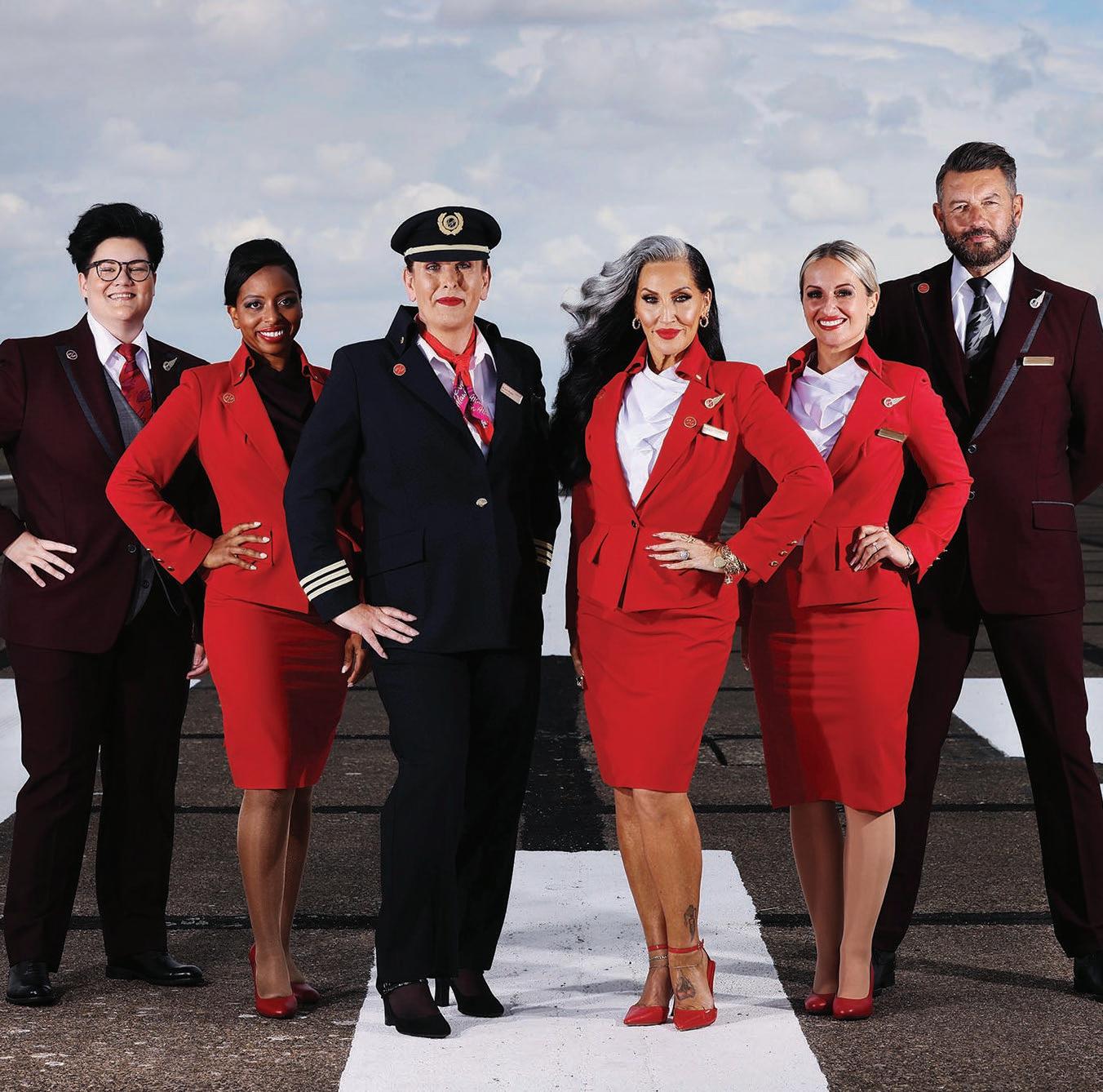
In a partnership with climate tech company CHOOOSE, BA is launching CO2llaborate, which features more precise emissions calculations and a new adjustable slider to give passengers more control over the amount of SAF versus verified carbon offsets they wish to purchase.
In a first for its corporate customers, the CO2llaborate platform will also offer a dedicated climate programme for companies to measure, reduce and manage the carbon emissions associated with their business trips.
As business travel begins to steadily increase once more, it’s vital that the aviation industry responds to the growing need for a sustainable way to travel. As pressures for corporations to behave more sustainably build, the aviation industry has turned its attention to investing in Sustainable Aviation Fuels (SAF).
SAF has become a buzzword in the travel industry in recent years as an innovative solution to reduce carbon emissions whilst flying. It is produced from sustainable feedstocks such as non-recyclable household waste, which is processed, organised and transported to a refinery.
The refinery then converts the waste into sustainable aviation biofuel, which is mixed with regular fuel to create a slightly more sustainable blend of fuels.
As part of the BTA’s series of ESG reports, we have been investigating the benefits and drawbacks of SAF, and whether alternatives to fuel would contribute to a greener planet. This report will be available to view at the beginning of November and

will provide insights from SAF providers and distributors, as well as our own research into SAF as the solution for a more sustainable way to fly.
Most importantly, the biggest conclusion that we have drawn from our series of sustainability reports thus far is that we can’t do it alone. To achieve the net zero target by 2050, it is fundamental that the industry cooperates.
Our role, as the BTA, is to highlight conversations around green aviation and travel, encouraging our partners and members to choose sustainable options as much as possible.
But we need more help.
We need governments to initiate sensible, sciencebased SAF targets. We need to incentivise the producers of SAF and offer grants to boost its implementation.
We want to ensure that the most sustainable choice is the first choice that business travellers make, but this will only be achievable if governments can provide sufficient support to make sure this is also the cheapest and easiest choice.
Around this time of year many businesses are planning, strategising and budgeting for the year(s) ahead. Depending on whether you like to know what you are doing for the next 38 weekends or prefer to live more of a white knuckle, one-day-at-a-time life, you may either love strategy or despise it.
But do the extraordinarily unpredictable times we are living in make business planning more difficult, even somewhat futile?
I’ve always believed strategy and planning were about optimising the controllables, whilst flagging the potential external (uncontrollable) factors.
But how many five-year plans written before the pandemic were worth the blood, sweat and tears that went into them, given the way the situation unfolded?
The foreseeable future looks turbulent, so are the only plans we really need those that focus on how to manage volatility, which after all can be seen as simply the emergence of unexpected challenges and opportunities.
From sole trader to plc,
Scott davies Chief Executive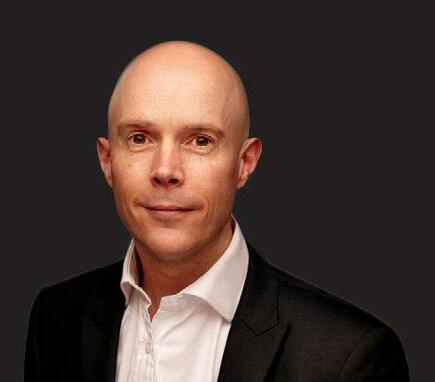
you’re certainly going to need to manage cash - your bank isn’t going take a punt if your five-year plan is just to 'roll with the punches' – but your biggest choices might be whether you plan to run a model that is either super resilient or ultradynamic and shape-shifting.
I tend to believe that planning long term shouldn’t consume too much time just now (unless you’re in the business of developing robotics and AI that has the potential to exterminate us all – please think that through all the way if you wouldn’t mind).
At ITM, for example, we have some major initiatives planned on a three-year timescale but the prime focus is squarely on the next year or so, because that’s what we believe our members expect from us.
So I wish you well in your planning, including for the unexpected. The main thing business has taught me is that if you assemble and retain the very best team possible, you’ll be able to thrive no matter what.
And always remember, culture eats strategy for breakfast.
AirLiNE traffic in Europe recovered to 88% of pre-Covid levels in the July to September period, according to the latest figures from airports body ACI Europe.
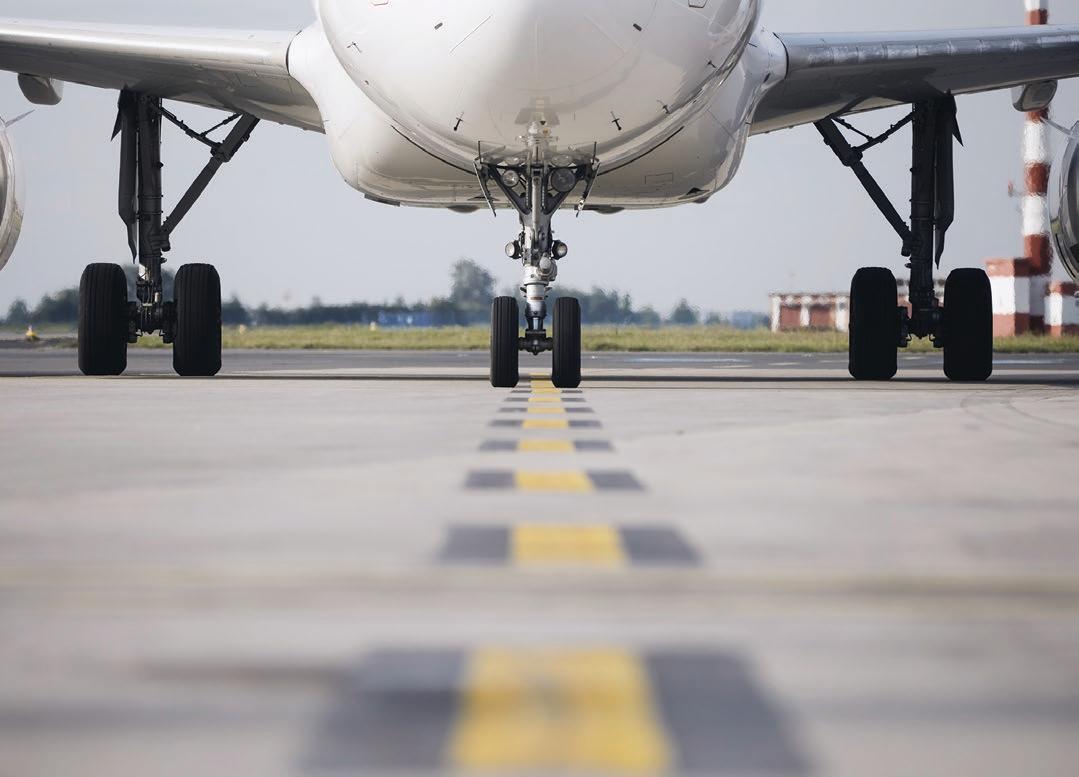
A surge in international airline traffic prompted a 61% rise in passengers, mainly driven by leisure demand boosting traffic in key holiday destinations like Spain, Portugal, Greece and Italy.
But Europe's major hubs continue to recover at a slower pace, with France traffic 14% lower than in 2019, the UK 18% down and Germany down by 26%.
“The exposure of these markets to intercontinental traffic (especially to Asia) as well as airport capacity restrictions at selected hubs in the UK and Germany acted as recovery limiting factors,” said the report.
TriPACTiONS has raised another $300 million funding, bringing its valuation to $9.2 billion.
It said the investment will help it accelerate global expansion, which in the past year includes the acquisitions of Reed & Mackay, Comtravo and Resia, office openings in Portugal, Germany, France and the UK, and the launch of TripActions Liquid in Europe.
CEO and co-founder, Ariel Cohen, said: “The recent funding
round shows not only the strength of the business model but also the value to companies looking to increase savings and enable responsible spending."
The funding came after media reports in the US claimed that TripActions has filed confidential paperwork for an initial public offering (IPO) next year, valuing the company at $12 billion.
TripActions now has more than 2,500 staff in nearly 60 offices.
TRIpACTIoNS' FUNdING RoUNd FolloWS REpoRTS oF Ipo plANS


Malmaison and Hotel du Vin and their sister serviced apartment brands from Frasers Hospitality are now providing free in-room period products to guests and staff in a partnership with sustainable period product manufacturer Freda.


Technology-led TMC, TravelPerk, has joined The Business Travel Association to help the BTA deepen its understanding of how the future of business travel is changing, particularly in relation to sustain ability and the move to hybrid and remote working.


World first Siemens will be the first global company to introduce a mandatory Green Stay Initiative policy and request that hotels provide data about their environmental impact.
THE HigHEr cost of doing business is putting more than a third of companies in the UK’s hospitality sector at risk of failure in early 2023.
This was the conclusion of a fourth quarter survey by UKHospitality, the British Beer and Pub Association, the British Institute of Innkeeping and Hospitality Ulster. Their joint survey showed 35% of their members expect to be operating at a loss or be unviable by the end of the year, with 96% experiencing higher energy costs and 93% facing food price inflation.
Continued uncertainty about rising inflation, future regulation and staffing is causing a crisis of confidence among business owners, with confidence lower than at any point during the pandemic. A majority (89%) are either not confident or pessimistic that the current levels of support offered by government will protect the industry in the next six months.
JOINS: CIBT
AS: General Manager
FROM: LNER
Samantha McKnight, formerly Commercial Lead Business Sales at LNER, has joined visa and passport specialist CIBT in the newly-created role of General Manager.

PROMOTED AT: FCM Consulting
TO: Global Aviation Practice Lead
FROM: Air Practice Lead Americas
Florian Mueller has been promoted at FCM Consulting to the role of Global Aviation Practice Lead. Based in New York, he joined FCM in 2019 from Emirates.


JOINS: Eurostar

AS: Chief Executive Officer
FROM: Oliver Wyman
Gwendoline Cazenave is the new CEO at Eurostar, replacing Jacques Dama. Cazenave was previously a partner at consultants Oliver Wyman and before that worked for SNCF.
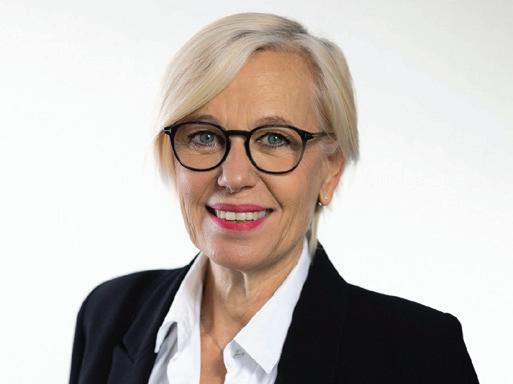
JOINS: Meon Valley
AS: Sales Director
FROM: Corporate Travel Management UK
David Thomas, former Global Sales Director at CTM, has joined Meon Valley as Sales Director to lead business development for its corporate and repatriation divisions.
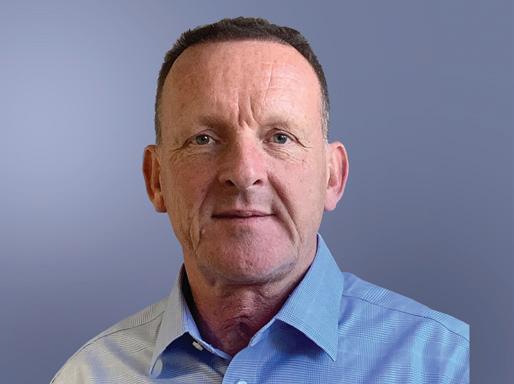
PROMOTED AT: Sabre
FROM: VP and General Manager EMEA
TO: VP Airline Sales EMEA
Sabre has promoted JeanVincent Teuler to the role of Vice President Airline Sales for Europe, Middle East and Africa, Travel Solutions, to grow its revenue and customer base.

JOINS: The Tourism Alliance
AS: Executive Director
FROM: Royal Aeronautical Society (RAeS)
Richard Toomer has taken over as Executive Director of The Tourism Alliance following the retirement of Kurt Janson OBE. He was previously Head of External Affairs at RAeS.
ALSO ON THE MOVE... >> Four Seasons Hotels and Resorts has appointed Alejandro Reynal as its new President and CEO. He most recently served as CEO of Apple Leisure Group and has worked at The Coca-Cola Company, Atento and Telefonica >> Generator and Freehand Hotels has promoted Generator's Global Head of Revenue Management Siim Karu to Chief Commercial Officer >> Beam, the UK trade association for the Business Events, Accommodation and Meetings industry, has appointed Sian Sayward, Director of Commercial Partnerships, People & Projects at Inntel, as Chair. Meanwhile, Julie Shorrock, Managing Director of Hotel and Travel Solutions (HTS), becomes Vice Chair and will succeed Sayward as Chair for 2024 >>
Samantha m cKnight florian mUEll E rAfter a turbulent couple of years, airlines are returning to the skies with business passengers firmly in mind, investing in new premium products and sustainable innovations. But alongside strong demand, limited capacity and the high cost of fuel, what price will corporates pay? Read our special report...
With enhanced products, new routes and even a few new entrants, airlines are clearly confident of enticing business passengers back to flying, says Gary Noakes

Business travellers stepping onto a flight for the first time since the pandemic – and lucky enough to be sitting in the front cabins of the plane – may be in for a pleasant surprise.
During the two-year hiatus, airlines that were able to invest took the opportunity to refresh their business and premium economy cabins. This was followed by a reinstatement of services and, in some cases, key new route launches.
This new confidence is particularly seen on transatlantic routes, with new services, new entrants and an upgrading of the whole in-flight experience.
British Airways, for example, now operates to 26 US cities with the addition of Portland in June and the revival of Pittsburgh and San José services. Another sign of growing confidence is the placing of Airbus A380s on some Chicago and Dallas/Fort Worth flights. Similarly, in June Virgin Atlantic began its first new US route since 2017 with the launch of flights to Austin and will follow this in November with Tampa.
Frequencies to New York from Heathrow
are now back to normal and, surprisingly, are already above pre-Covid levels at Gatwick. Here, since 2021, JetBlue has begun flights to JFK and Boston, British Airways has reinstated its daily frequency, Norse Atlantic has arrived and, from April 10 2023, Delta returns for the first time since 2012. Delta will offer JFK daily and will reinstate Heathrow-Los Angeles plus Edinburgh-Atlanta after a 16-year absence.
In 2016, the Delta One Suite was the first business class product to offer a sliding door and that is now becoming the norm for all major carriers, bringing to business class travel what was once only found in first class.
Others were quick to emulate this, with BA adopting the sliding door concept in a major upgrade of its Club World seat. The new Club World Suites are already on Airbus A350s and Boeing 787-10s and should be on all Heathrow-based 777s by the end of this year. Other aircraft types will begin to be refurbished in 2023.
At the end of October, BA returned its full Club World meal service and reintroduced
While we may be flying into an economic storm in the months to come, airlines can be thankful they did the groundwork in the last couple of years”
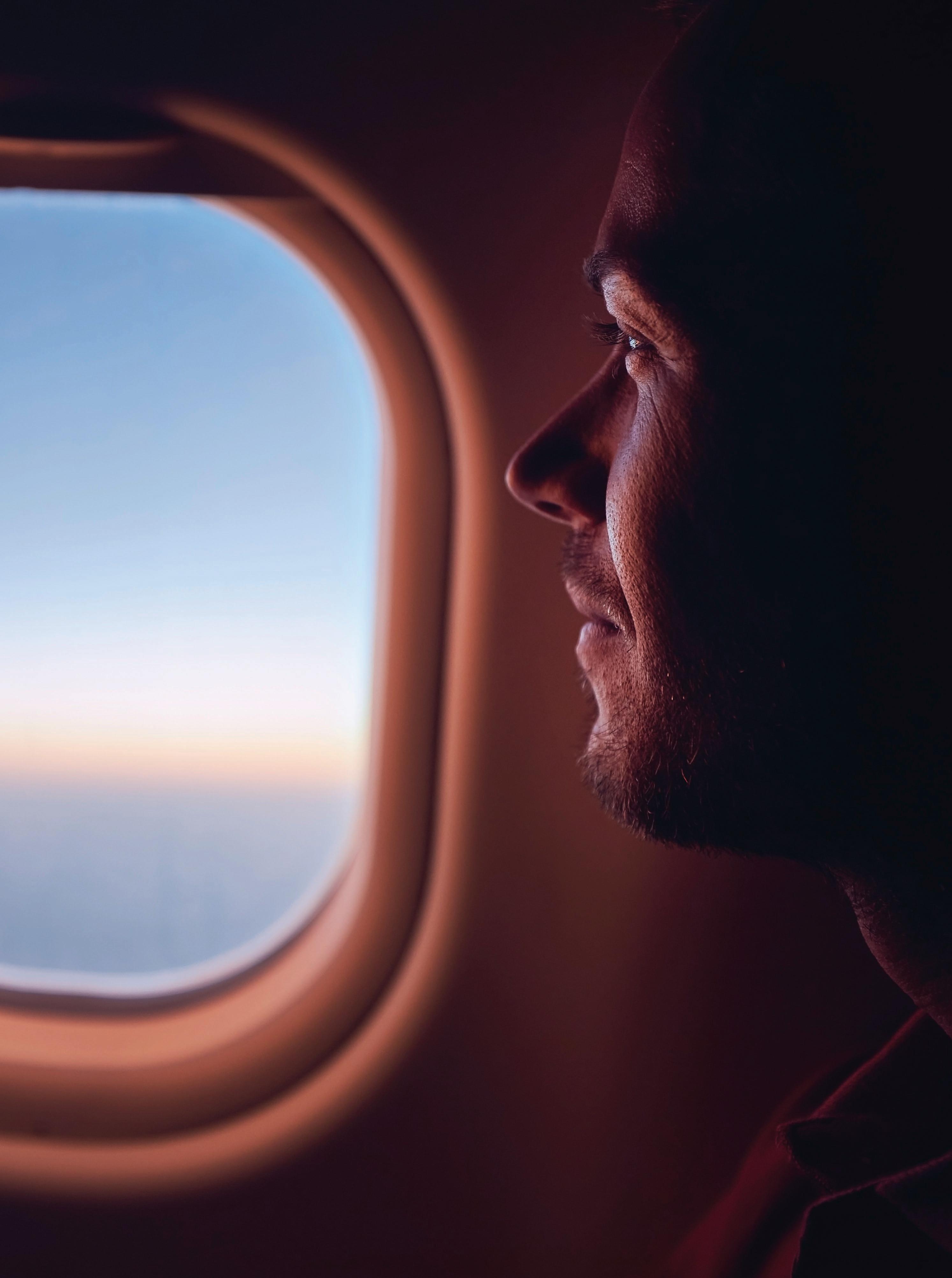
In 2016, the Delta One Suite was the first business class product to offer a sliding door and that is now becoming the norm for all major carriers”

its express service on evening flights, where passengers can request a one-tray service to allow more time for sleeping. It is also introducing a refreshed Club World check-in zone at Heathrow Terminal 5.

American Airlines switches to sliding doors in 2024 with the launch of the Flagship Suite on new Boeing 787-9 deliveries. Its 787s will offer 51 business class seats instead of the current 30, together with a new premium economy cabin.
The Flagship Suite will also feature on American’s latest single-aisle Airbus A321XLR aircraft destined for less busy transatlantic routes from late 2023. Carriers have looked at JetBlue’s success with its mint business seat on the A321 and decided it is a concept that works, despite the aircraft’s narrow body.
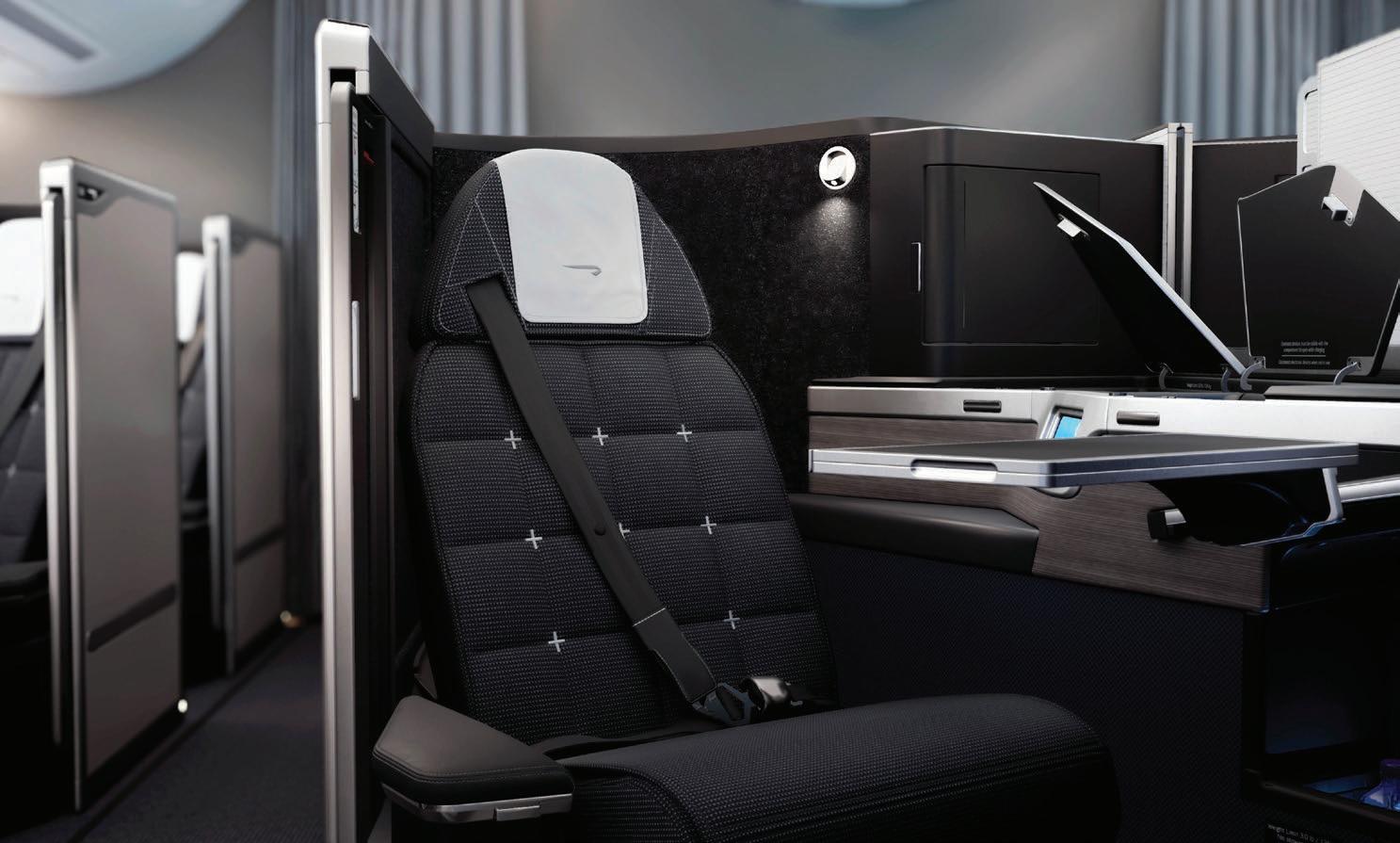
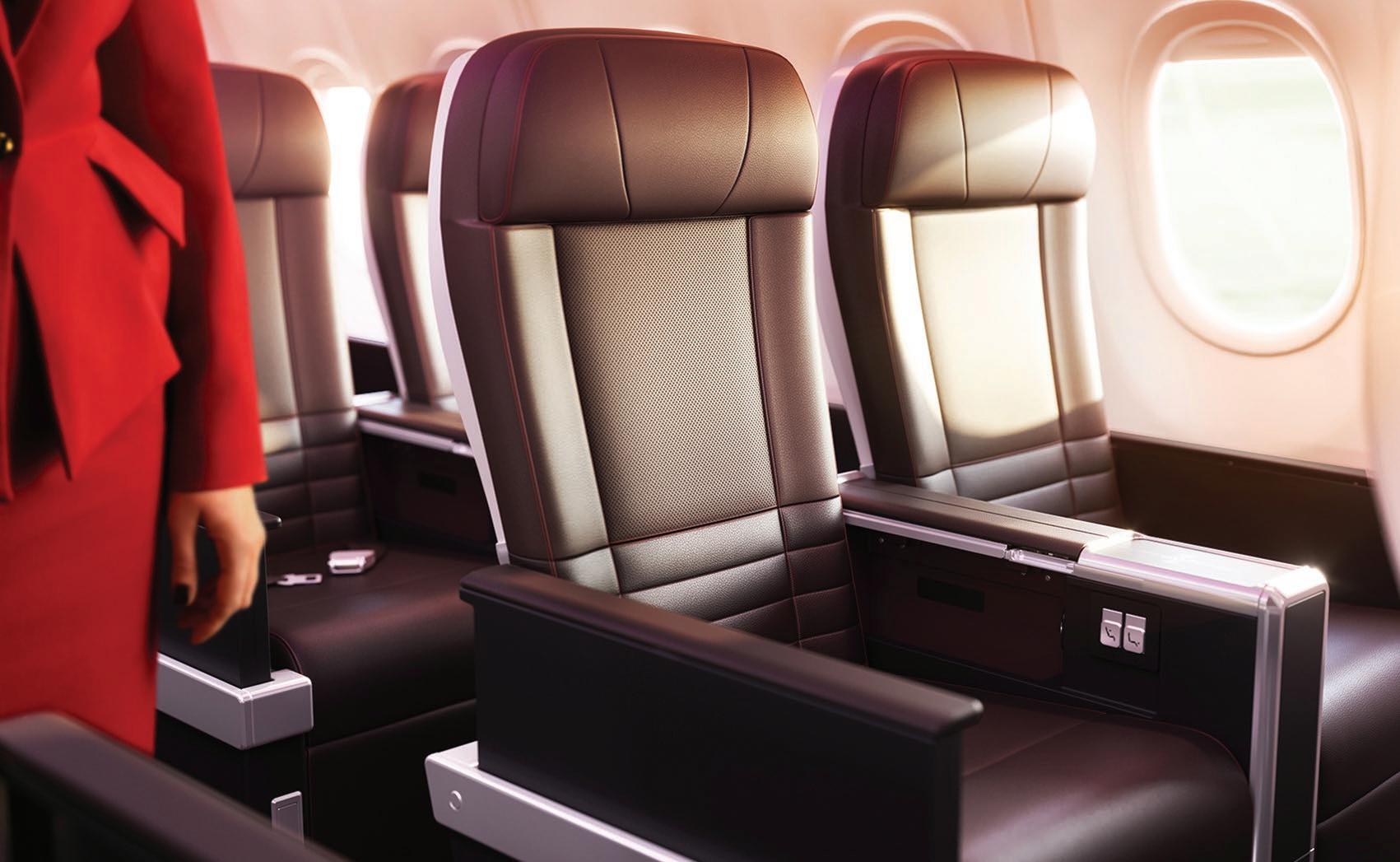
American’s investment can be seen as a statement of faith in the corporate travel sector, with the number of premium seats on its long-haul aircraft set to increase by more than 45% by 2026. The carrier will also retrofit its Boeing 777-300ER fleet, with work on these 20 aircraft starting in late 2024. Some of American’s Admirals Club lounges will also be “refreshed”, although none yet scheduled are in key locations.

Another US carrier investing in ground product is United Airlines, which opened a new flagship lounge at its Newark hub in may. The one-off United Club is almost 30,000 square feet, seats nearly 500 and boasts its own coffee barista.

Lounges might be an issue for Virgin Atlantic when it joins SkyTeam in January, with the possibility of its palatial Clubhouses being overrun by alliance partner passengers. Virgin’s Chief Executive Shai Weiss said the issue was “something we need to think about in order that the experience does not deteriorate,” adding that he would like to see the Clubhouse at Heathrow expanded “at the right time”.
Back in the skies, United and American plan to revive the ultimate premium travel experience from 2029, having committed to the planned supersonic Overture aircraft. American has a deposit on 20 and United 15, with both carriers having options for more. Overture will connect New York and London in three and a half hours, but with capacity at only 65-80 passengers and four engines to fuel, it really will be an exclusive travel experience.
A €200 million investment by Finnair, unveiled in February, will see it roll out an enhanced Business Class and a brand






























new Premium Economy cabin on long-haul aircraft by the end of 2023. It is the launch customer for a new business class seat concept, the Collins Aerospace AirLounge, a fixed contoured shell with no recline where passengers can sit at different angles, rest their feet on an ottoman or use infill panels to create a large flat surface.
Finnair's new cabin concepts are currently being flown on select flights between London and Helsinki and on services from Finland to New York, Singapore, Tokyo, Phuket and Bangkok.
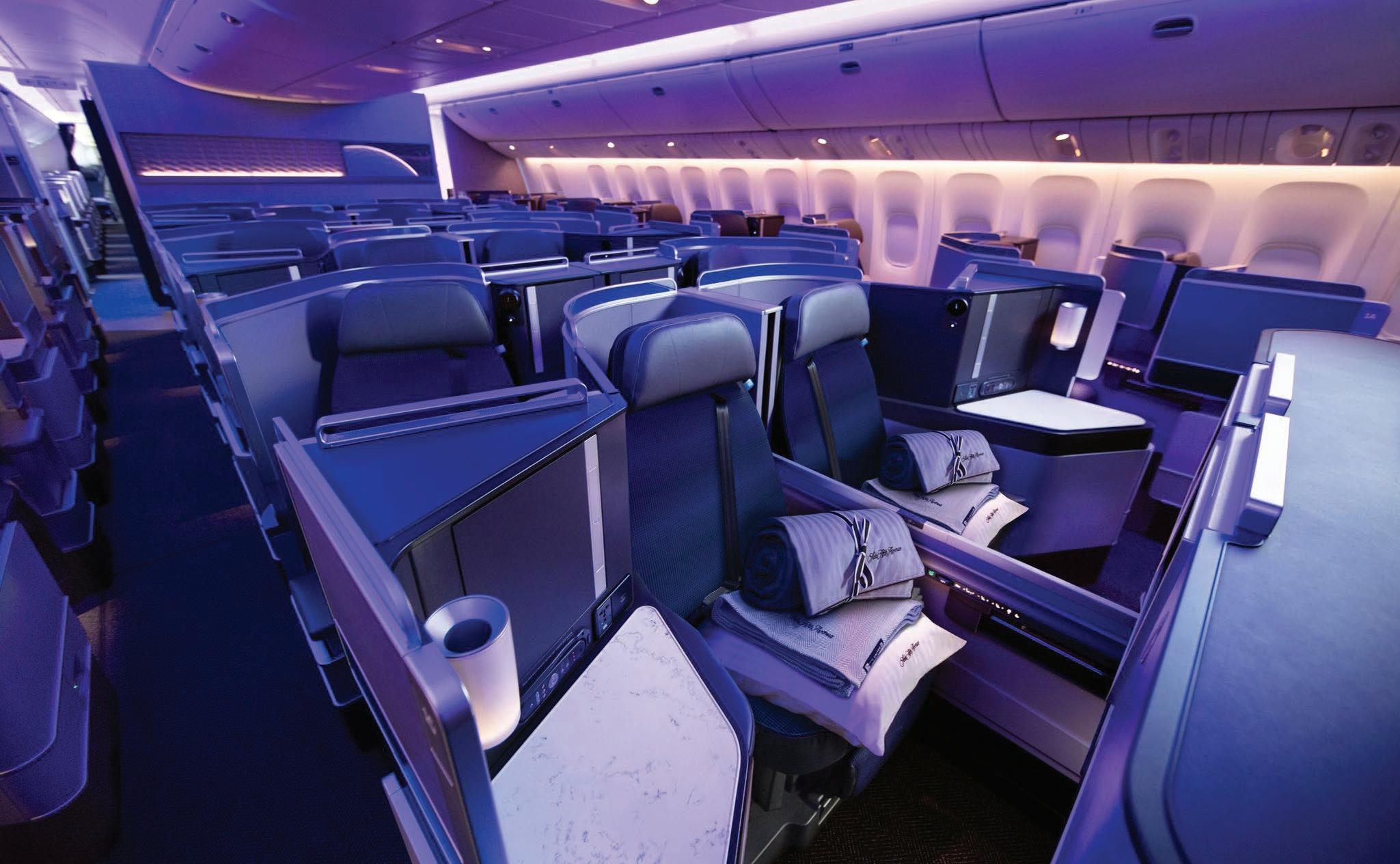
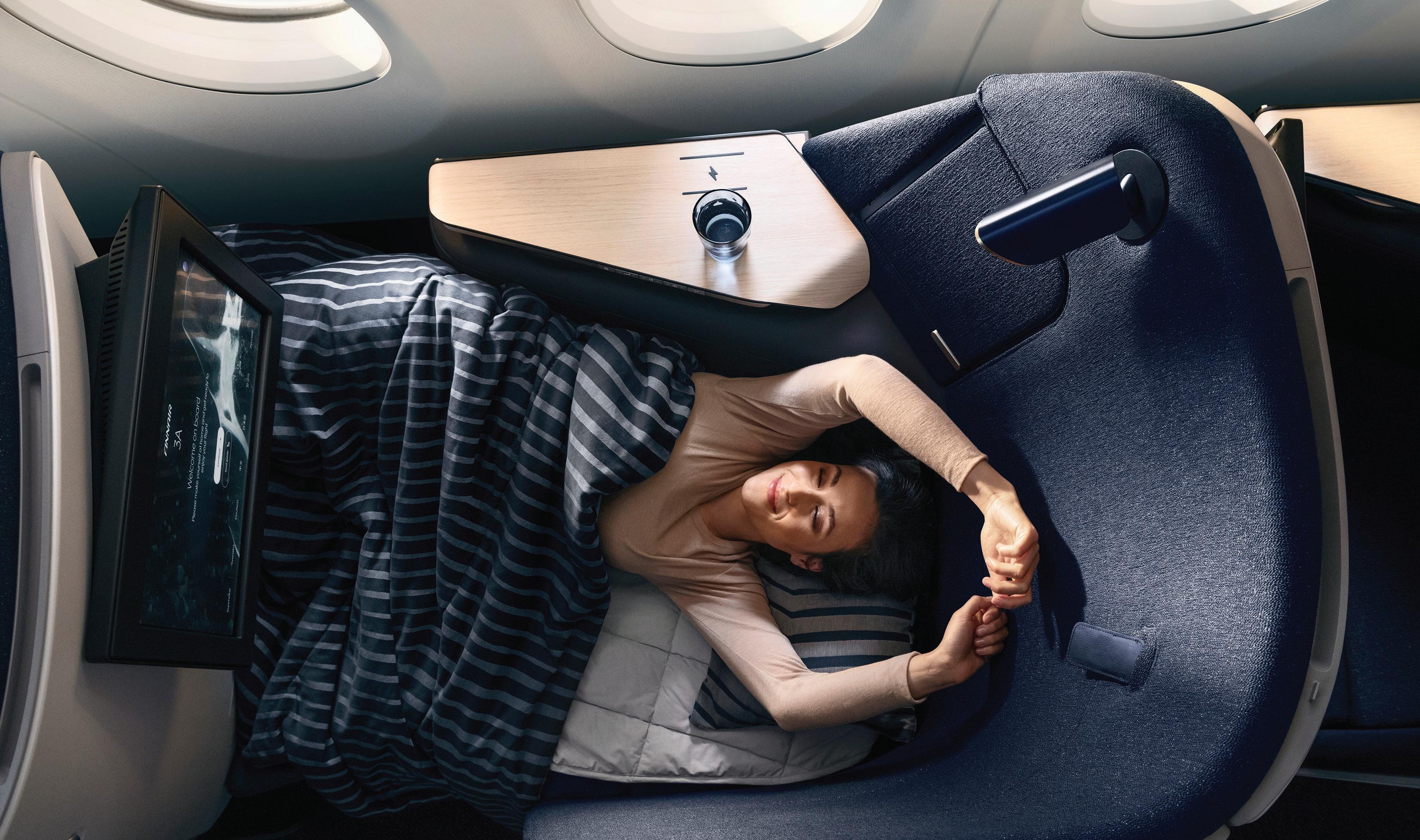
KLm is another carrier late to the premium economy party, launching Premium Comfort on one Boeing 787-10 in August on its JFK route. The cabin of 21-28 seats has a 2-3-2 layout and will be retrofitted throughout the airline’s fleet.
Emirates currently has a 56-seat premium economy cabin on Airbus A380s on some frequencies from Heathrow to Dubai and from Dubai to points in Australia and New Zealand. But a massive retro-fit programme starts in November and from march 2023 it will feature on Dubai-Singapore flights.
Overture will connect New York and London in three and a half hours, but with capacity at only 65-80 passengers and four engines to fuel, it really will be an exclusive travel experience"

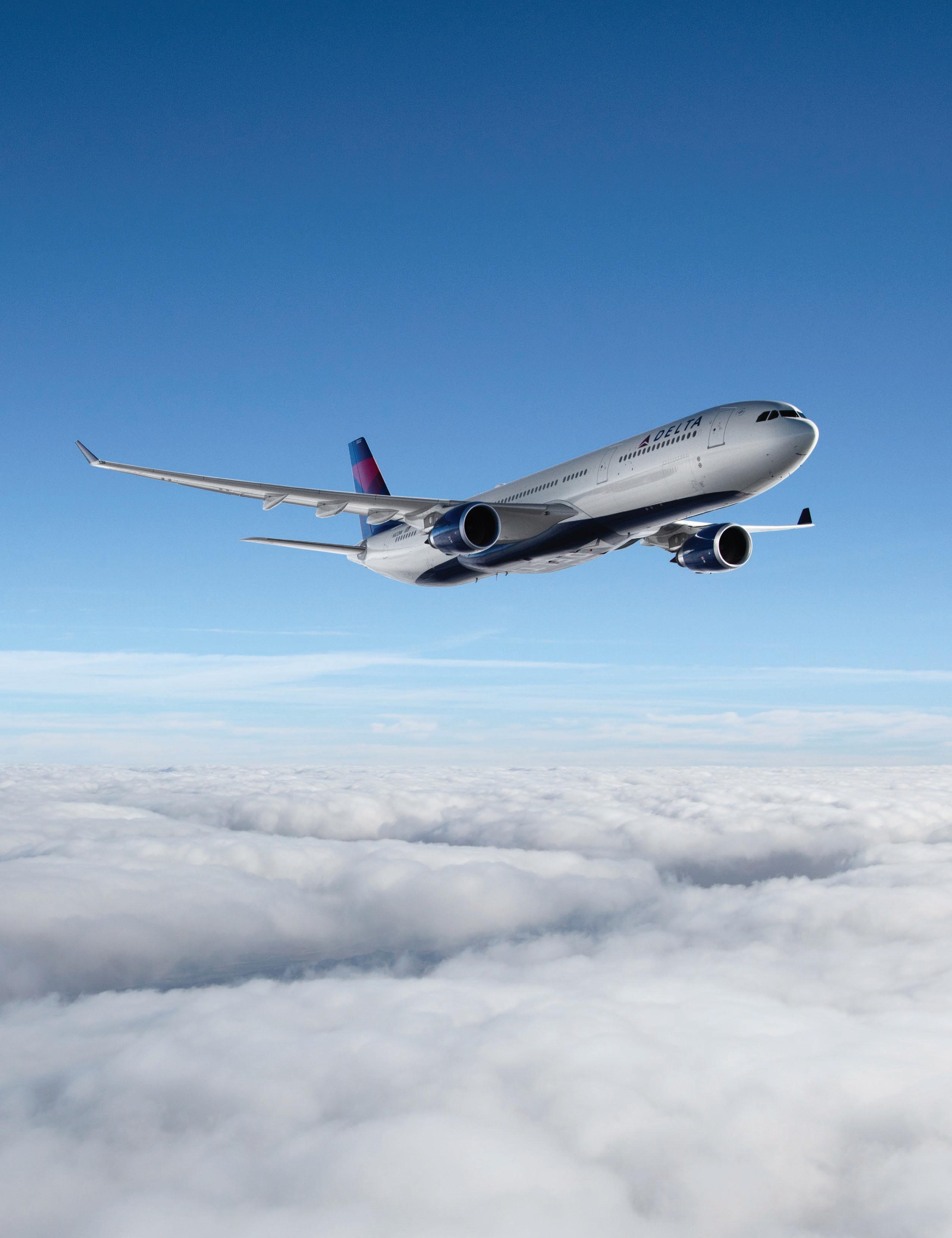



Delta is expanding its 2023 network with new services from London-Heathrow to Los Angeles, London-Gatwick to New York-JFK and from Edinburgh to Atlanta. Delta and partner Virgin Atlantic will offer up to 40 daily flights between the U.K. and the U.S. in summer 2023.
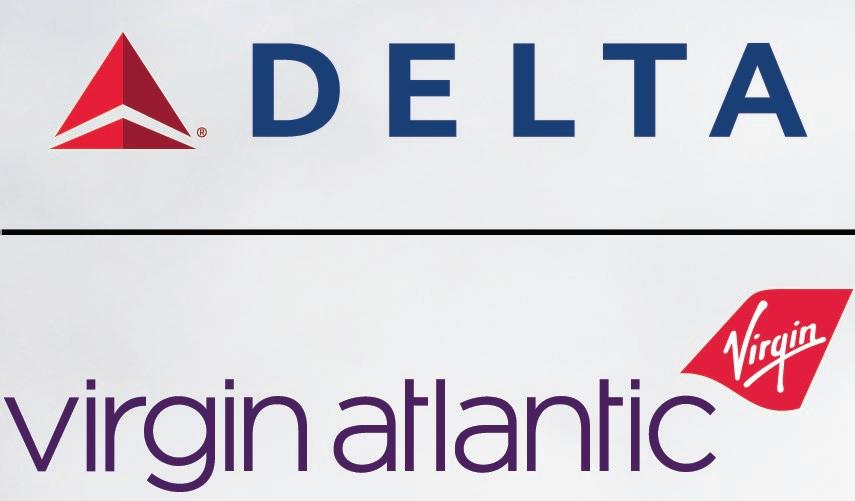




Passengers in Air Canada’s Premium Rouge premium economy cabin will get free WiFi from this month in a move which the carrier says is a first for a Canadian airline. In addition, Signature class customers on eligible services connecting through Vancouver will be transferred between flights by a plug-in hybrid or fully-electric Porsche vehicle. This move follows United Airlines’ new partnership with luxury car brand Jaguar, enabling mileage Plus Premier members with tight connections to benefit from gate-to-gate transfers.
Back on board, more innovations are set to come as new aircraft types take to the skies. Covid saw the end of the Airbus A380 being the flagship for numerous airlines, with Emirates taking delivery of the last off the production line in 2021. Carriers like Etihad now showcase the A350 twinjet as their posterchild, particularly the latest version – the stretched A350-1000, on which Etihad has its new Business Studio Suites.
Boeing was due to bring its newest flagship, the stretched 777X, into service in 2023 but the pandemic and technical delays mean it is more likely to be 2025 before Lufthansa, Qatar Airways and others receive them. The larger version, the 777-9, carrying 426 passengers in a two-class layout, rivals the 747 in capacity but with 30% less fuel burn.
The 777X’s huge wingspan means the tips fold to allow it to taxi easier, but one disadvantage is that unlike the A350 and 787, it is based on conventional metal
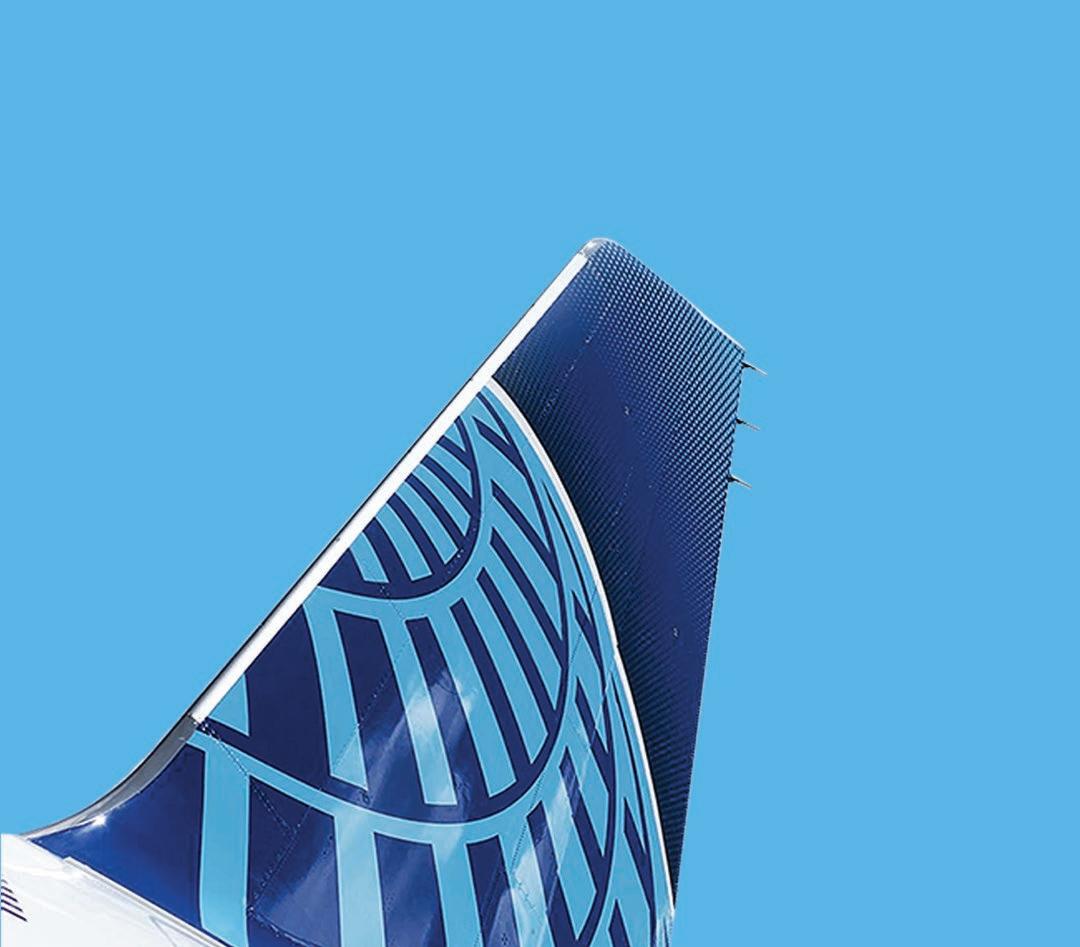
design, so lacks the increased humidity and oxygen levels that a stronger composite structure permits.


Lufthansa was due to debut new versions of all four cabins on the 777-9 but will now do this next year on other aircraft. Unlike rivals, Lufthansa is saving the privacy screens for premium sleeper seats at the front of the business cabin.
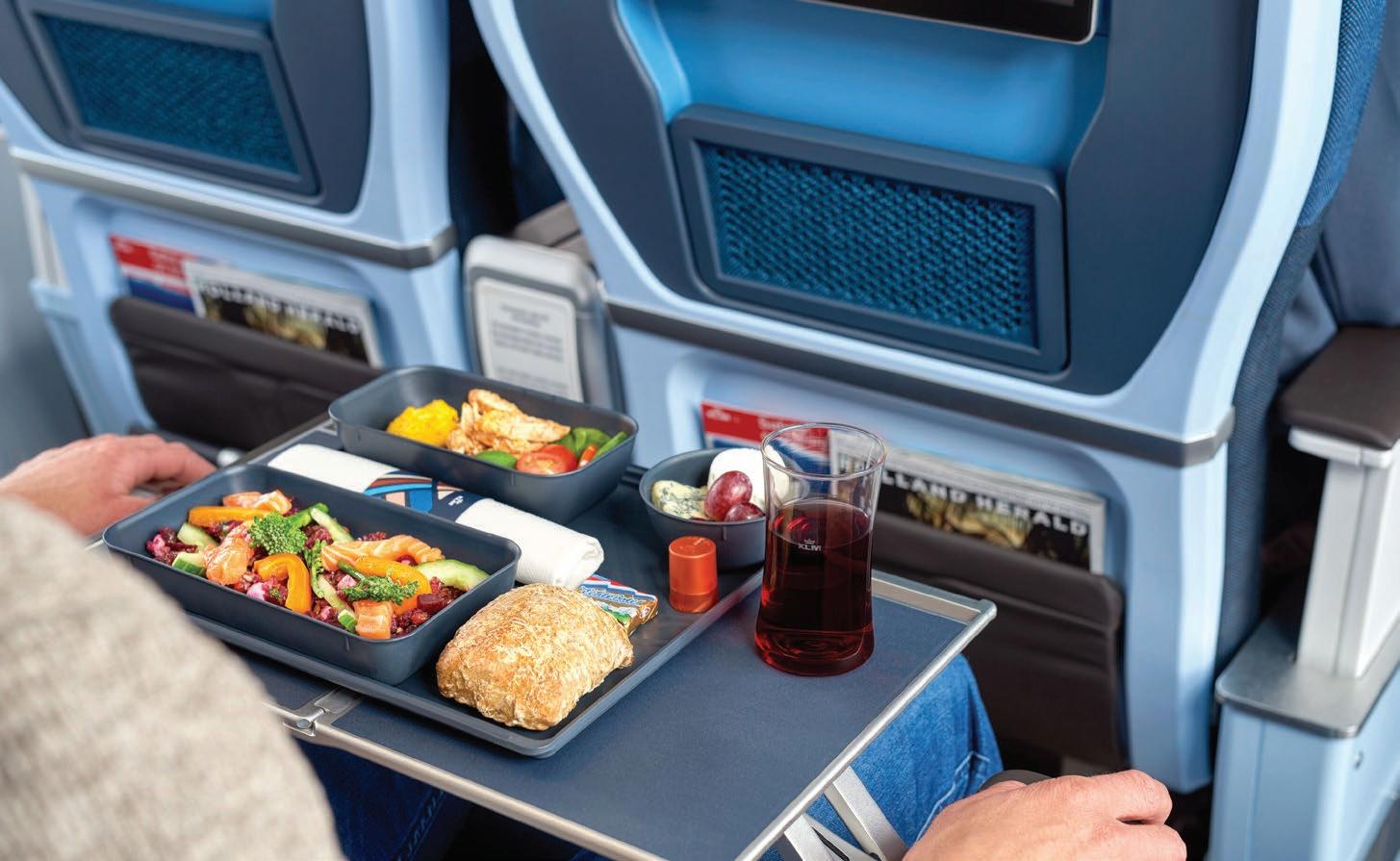
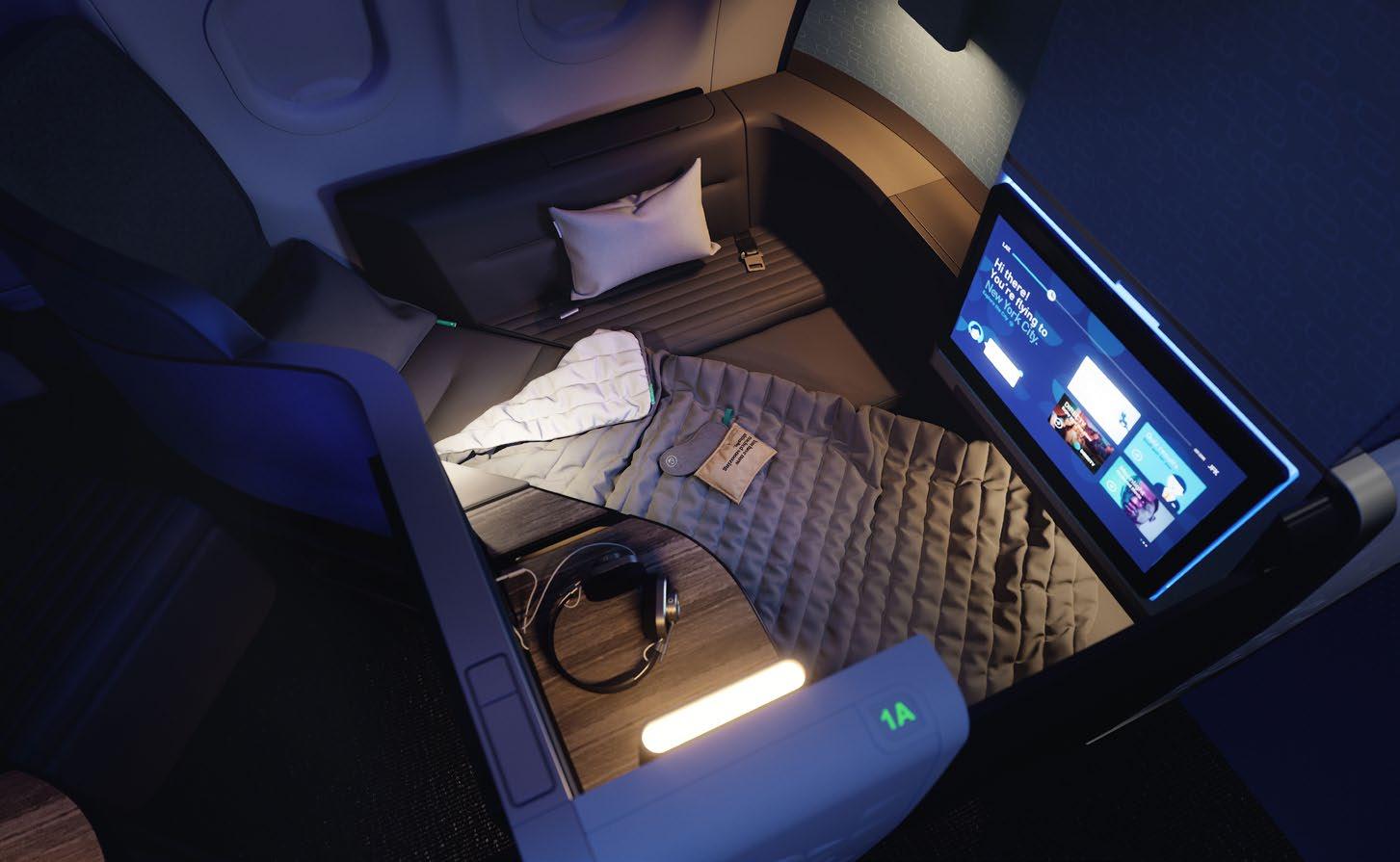
There is an abundance of developments and while we may be flying into an economic storm in the months to come, airlines can be thankful they did the groundwork in the last couple of years.


Back on board, more innovations are set to come as new aircraft types take to the skies"KLM JETBLUE MINT



















Airlines have set ambitious targets to reduce their carbon footprint but it won’t be an easy ride, says Gill Upton.

Have some sympathy for airlines trying to decarbonise. While other industries are progressing more rapidly, aviation is hampered by multiple obstacles, thwarting the 2026, 2030, 2040 and finally net zero emissions goal of 2050. Real progress has come in short-haul and regional air. Ravn Alaska has ordered 30 electric planes from developer ZeroAvia, Eviation Alice ran a test flight in September of its fully-electric aircraft, DHL has ordered 12 for its cargo operation and United has ordered 100 of the 19-seater regional electric






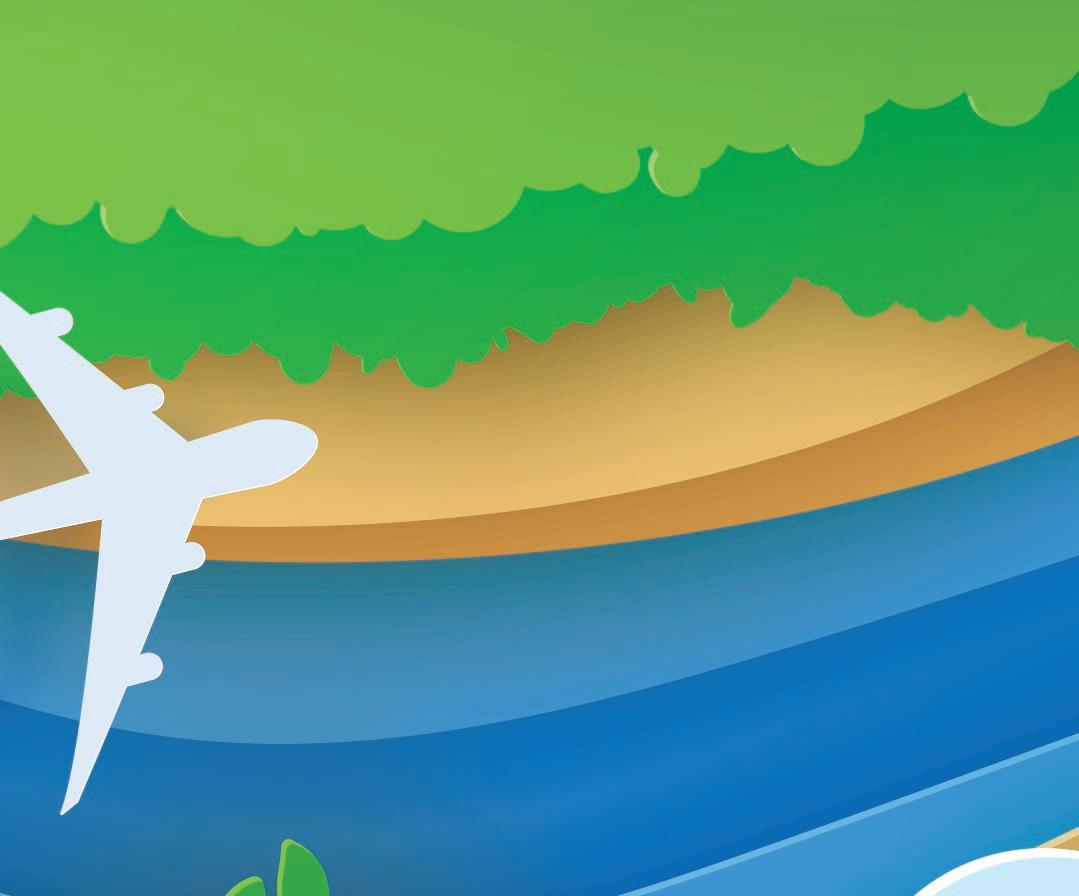

aircraft Hart ES19. EasyJet is investing in a hydrogen-powered aircraft, alongside its partnership with Wright Electric for a 186-seater aircraft being tested in 2023.
Decarbonising short-haul flights will accelerate as batteries become more efficient over the next decade. Battery/electric and/or hydrogen/electric zero emission aircraft could replace most short-haul aircraft by 2050. Norway, for example, aims for all short-haul flights to be 100% electric by 2040.



But far less is happening to decarbonise long-haul flights. Airbus estimates its green

hydrogen-powered planes (made from renewable electricity and partnered with Delta) will be available from 2035 – a long way off. To date there has been nothing publicly from rival Boeing.
“The manufacturers really need to get on with producing a decent-size, 200-seater zero-emission aircraft powered by hydrogen,” says Paul Le Blond, Chair of the Chartered Institute of Logistic and Transport’s Aviation Policy Group. “Churning out better fuelefficient aircraft with 20% savings is not good enough; it needs to be 100%.”
Le Blond derides where R&D money is going. “It’s a bit of a scattergun approach, with various pots of public money exploring different technologies, as we don’t know what’s going to work. It’s time now for focus. More change is needed and quickly,” he says.
Ideally, he would like to see co-ordinated government support and research into longhaul travel being achieved by smaller electric and/or hydrogen aircraft in a series of short hops rather than non-stop.






Halving carbon emissions by 2030 – just over seven years away – probably won’t materialise.
The UK Government’s Jet Zero Council has set a goal of delivering the world’s first zero emission long-haul flight by 2050 and awarded fiscal incentives for sustainable aviation fuels (SAF) to accelerate change. Meanwhile, Carbon Footprint has laid down the challenge of flying a zero carbon-emission (non SAF) 100-seater aircraft across the Atlantic in one hop to win the Freedom Fight Prize.
”It may accelerate change,” says Dr Wendy Buckley, Client Director. There are three contenders: Zero Avia, The ePlane Company and Okulo Aerospace.
The 2050 goal is not achievable using existing alternative fuels alone as this only hits a reduction of 36%.
Bob Schumacher, Director Sales at United Airlines, says a strategy using “multiple levers” is needed, and most airlines are following this
path. Virgin Atlantic, for example, is a founding member of the Aviation Climate Taskforce (ACT), Jet Zero Council and Sustainable Aviation and part of the Clean Skies for Tomorrow initiative, which bring together industry, government and technology experts to “tackle this global problem as a coalition of the willing”, says a spokesperson.
Moreover, SAF is too expensive due to insufficient capacity (and concerns over displacing land to grow it) so some airlines are engaging with corporates to purchase more in order to reduce the price.
United’s Eco Skies Alliance has grown from 12 signees, including Deloitte, Nike and Siemens, to nearly 20. The Delta/Air France KLM/Virgin Atlantic corporate SAF programme has 40, including Google and Chevron.
SAF is also scarce as only 55 airports provide it, a fraction of the world’s 15,000plus major airports. “There is currently only enough SAF available on the market to support one day of Delta’s operations at prepandemic levels,” says Clare Black, GM Home Markets at Delta.
American Airlines is one of many lobbying for a combination of private and public funds to scale SAF production. John Nicholls, Global Head of ESG and Sustainability at Corporate Travel Management (CTM), is calling for “a policy change and budgetary inclusions for governments to co-support the SAF initiative”. Virgin Atlantic is supporting efforts to build
the UK's first SAF plant by 2025. But detractors say being over-reliant on SAF and planting trees will never remove the 660 billion tonnes of carbon dioxide needed to limit global warming.
Modernising fleet to include more fuelefficient aircraft is hampered by delivery backlogs. Switching to electric for ground vehicles is an immediate win and Delta, for example, is electrifying 50% of ground service equipment by 2025. Another quick fix is greening the supply chain.
Offsetting is part of most airlines’ plans and is supported by IATA, which refers to offsetting as a “key immediate enabler” via the International Civil Aviation Organisation’s (ICAO) Carbon Offsetting and Reduction Scheme for International Aviation (CORSIA), which aims to “stabilise international emissions at 2019 levels in the short- to medium-term”.
IATA reckons that by 2050 65% of carbon mitigation will come from SAF, 13% from new propulsion technology such as hydrogen, 3% from efficiency improvements, 11% from carbon capture and 8% from offsets.
IATA has lobbied for subsidies to drive technological change. Being able to fly in straight lines to save fuel would help too, as would removing older aircraft and regulating for a higher percentage of SAF fuel blend.
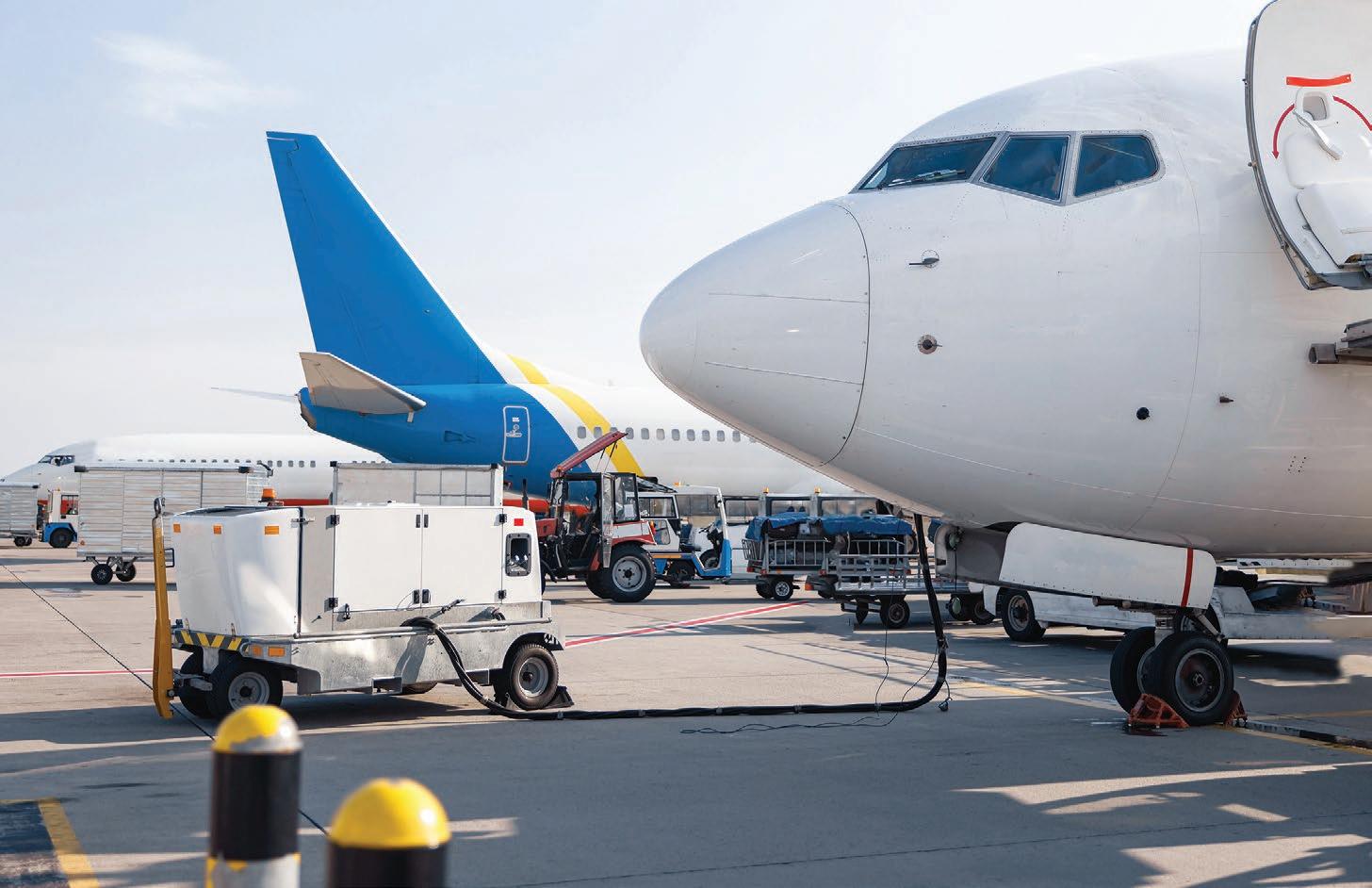
Despite these multiple levers, the Travel Smart Campaign says current targets will not keep to the Paris Agreement goal for global warming not to exceed 1.5 degrees C.


“SAF takes 80% out of the fuel so there is still 20% left, so we need to do the technology and pull the carbon out. SAF is a bridge. We need to look at what else we can burn,” says United’s Schumacher.

Green hydrogen is one possibility – although doubters point to capacity and storage issues – and carbon capture another.
Air Company is creating a new SAF fuel made from captured carbon dioxide. Direct air capture technologies (DAC) can pull vast quantities of CO2 from the atmosphere while using very little land and water but it is still in its infancy. United has invested in one DAC developer, Carbon Engineering.
Airlines with deeper pockets are doing the most and, as a non-competitive area, are
willing to share best practice.
Lufthansa is investing in power-to-liquid technology that uses renewably-generated electricity, water and CO2 to create a synthetic crude oil that can be processed into kerosene. Tim Johnson, Director of the Aviation Environment Federation, reckons this is the more promising technology than fuel from waste, which IAG is investing in despite a myriad of practical issues.
Ultimately, he believes the only solution is a curb on growth. "But this is something this government is not willing to entertain," he says. "Constraint of the industry has to be part of the package, to grow cautiously in accordance with our ability to decarbonise.”
A modal shift must follow and Chris Truss, International Development & Sustainability Director at Reed & Mackay, recognises this as the more difficult part.
"It’s a tough call if the traveller is a gold card holder,” he says. But Truss believes sustainability is a more credible and reputational argument than predilections.







Travel managers are embracing sustainability (it will impact their share price otherwise) by prioritising rail over air and road, striving to travel smarter and more purposefully and supporting the SAF roll-out, but they too face obstacles.







These are highlighted by Carol Fergus, Global Travel Director at Fidelity, which shares top slots with Novo Nordisk, Swiss Re Group and Legal & General Group in the Travel Smart Campaign rankings. She says her key frustrations are non-standardised data and insufficient comparative data on airlines’ carbon reduction initiatives.


“We’re unable to choose one airline over another as the data is very crude. It’s a minefield to ensure that we’re working with the most sustainable airlines as all the airlines are doing different things, so we cannot compare like with like," she says.
"Switching airlines is challenging due to scheduling and issues over traveller preferences. Our policy is cheapest on the day but emissions come with a price tag so we have to look at all the variables.”
Fergus would like simplified carbon measurement and methodology and a

joined-up approach between industry and government for a universal standard without such a high price tag.
“Without a common standard across the industry it is very hard to measure progress, benchmark or set realistic goals,” agrees Jens Liltorp Manager, Global Travel and Meetings, LEO Pharma in Denmark.
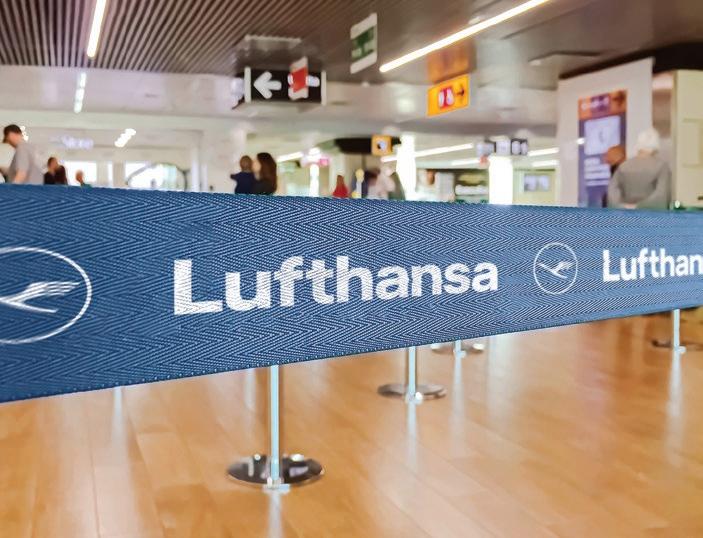
Sally Higgs, Travel & Events Sustainability Manager at Festive Road, adds: “I think corporates are paralysed on action as they don't have the tools, budget and support to effectively reduce their emissions.”

Reed & Mackay hopes to release a sustainability module by Christmas, giving real-time carbon footprints of individual flights at point of sale. CTM reckons its Lightning OBT already provides that data at time of booking, showing differences between cabin class emissions on the same flight and highlighting the proportionate impact of travelling in premium cabins.

Moreover, airlines must disclose more, says Truss, although judging by the pushback from airlines (particularly those with a high percentage of premium passengers) on the ICCT carbon emission rankings on transatlantic flights, this is unlikely to happen. Low-cost carriers fare better.
There is still much to do for the aviation industry to get its house properly in order but, encouragingly, the days of flight shaming are long past.

It's a bit of a scattergun approach, with various pots of public money exploring di erent technologies as we don't know what's going to work"
 Guy SnelGar Global Business Travel Director, Advantage Travel Partnership
Guy SnelGar Global Business Travel Director, Advantage Travel Partnership

It’s almost impossible to predict how 2023 air fares will trend with so many variables still unknown.
Current high fares, particularly on longhaul flights, are being largely driven by limited capacity and by business travel bouncing back quicker than some expected.
Throw in high fuel costs from a war in Europe, pent-up demand from both business and leisure travel and perhaps the current high prices have been inevitable. But how many of these factors will still be
in play as we go into 2023 and drive next year’s ticket prices?
Airlines seem to be cautiously gearing up for greater capacity, but they don’t know whether the summer airport caps will be reintroduced. If the surge quietens, will some corporations’ longer-term plans to limit business travel (for sustainability, cost and wellbeing reasons) start to hit demand?
Looking beyond business travel, the cost-ofliving crisis means we don’t know how strong the traditional leisure travel peaks early next year will be – will seats get filled up for the year ahead, or will there be greater capacity, leading to more corporate business competition, and the discounts and incentives that come with that?
With the current challenge being finding seats, some airlines are now reluctant to take groups’ business, even into early next year.
I suspect that how forward bookings look by February may lead to a flexing of pricing
Revisit 2023 air agreements if you haven't already done so. Do company travel patterns match what was put in place last year, two years ago or before the pandemic?
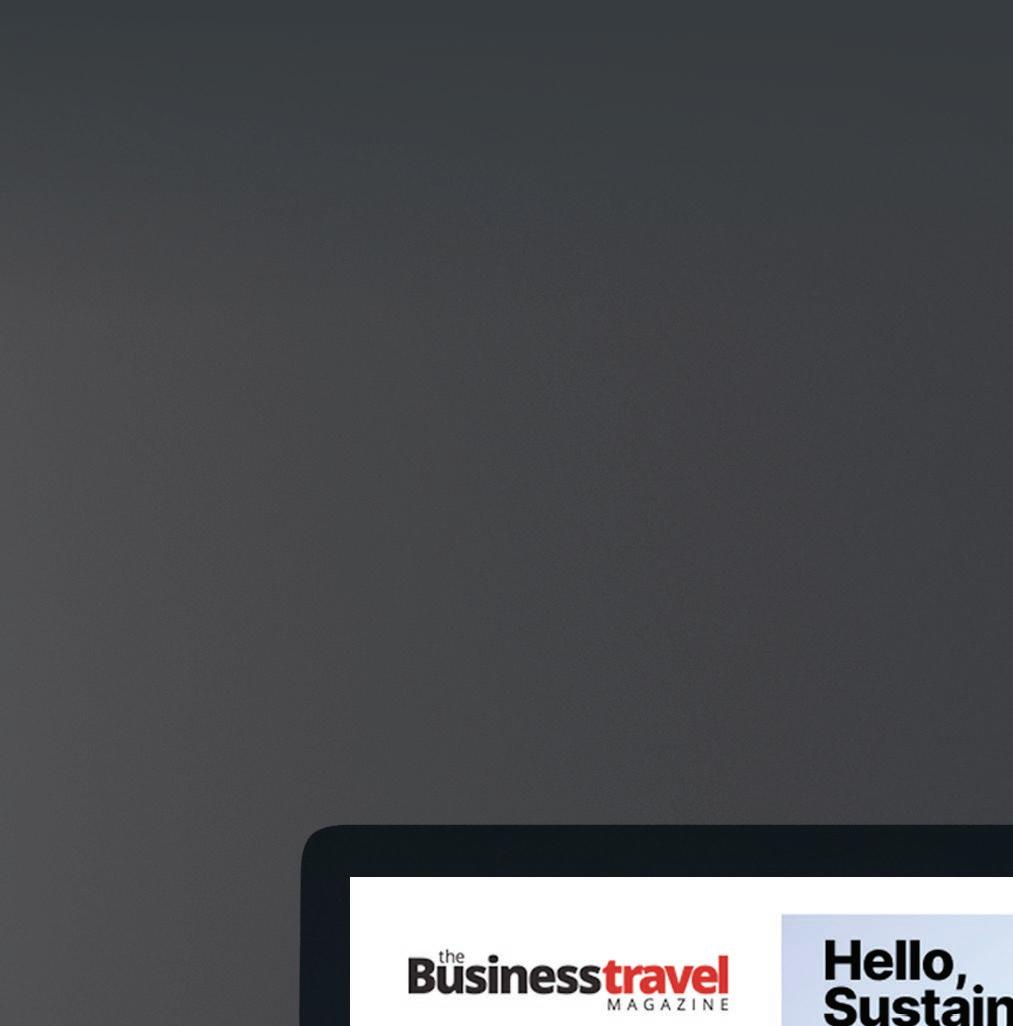

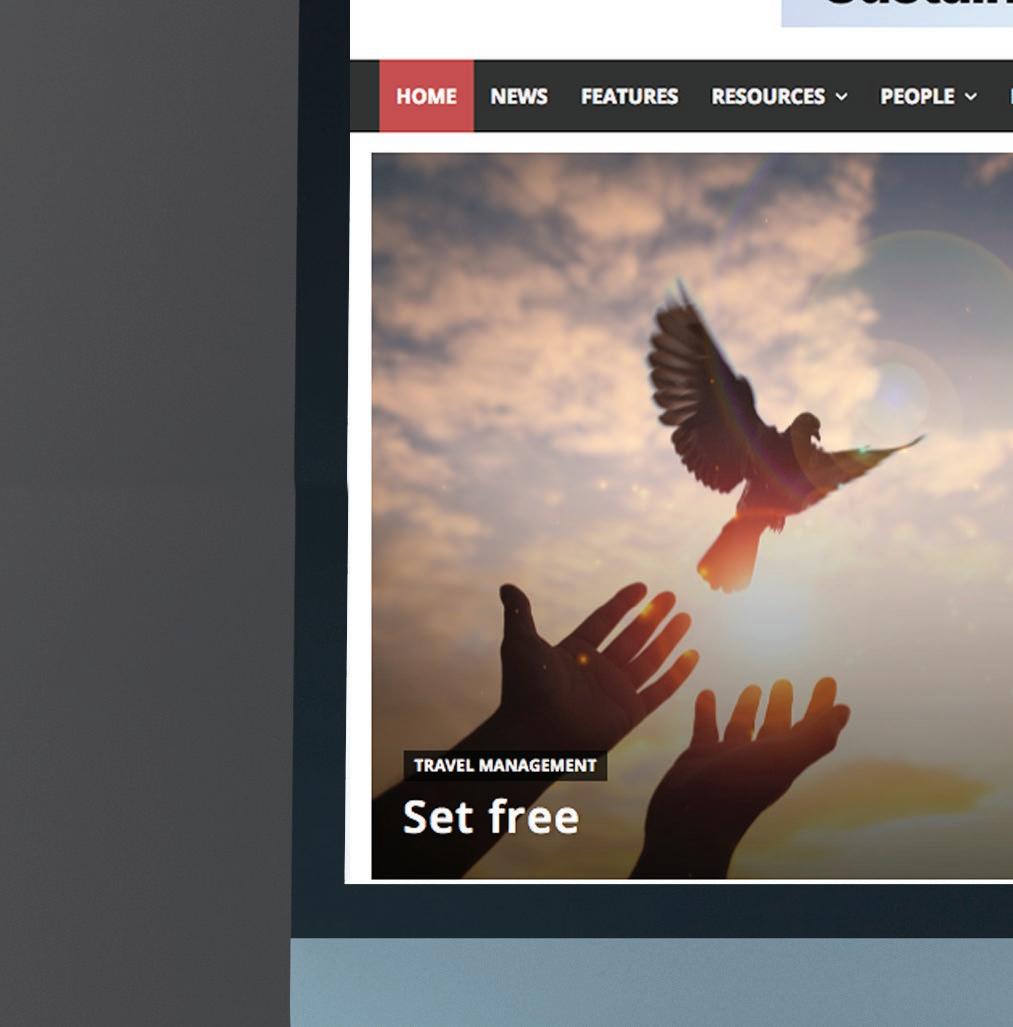
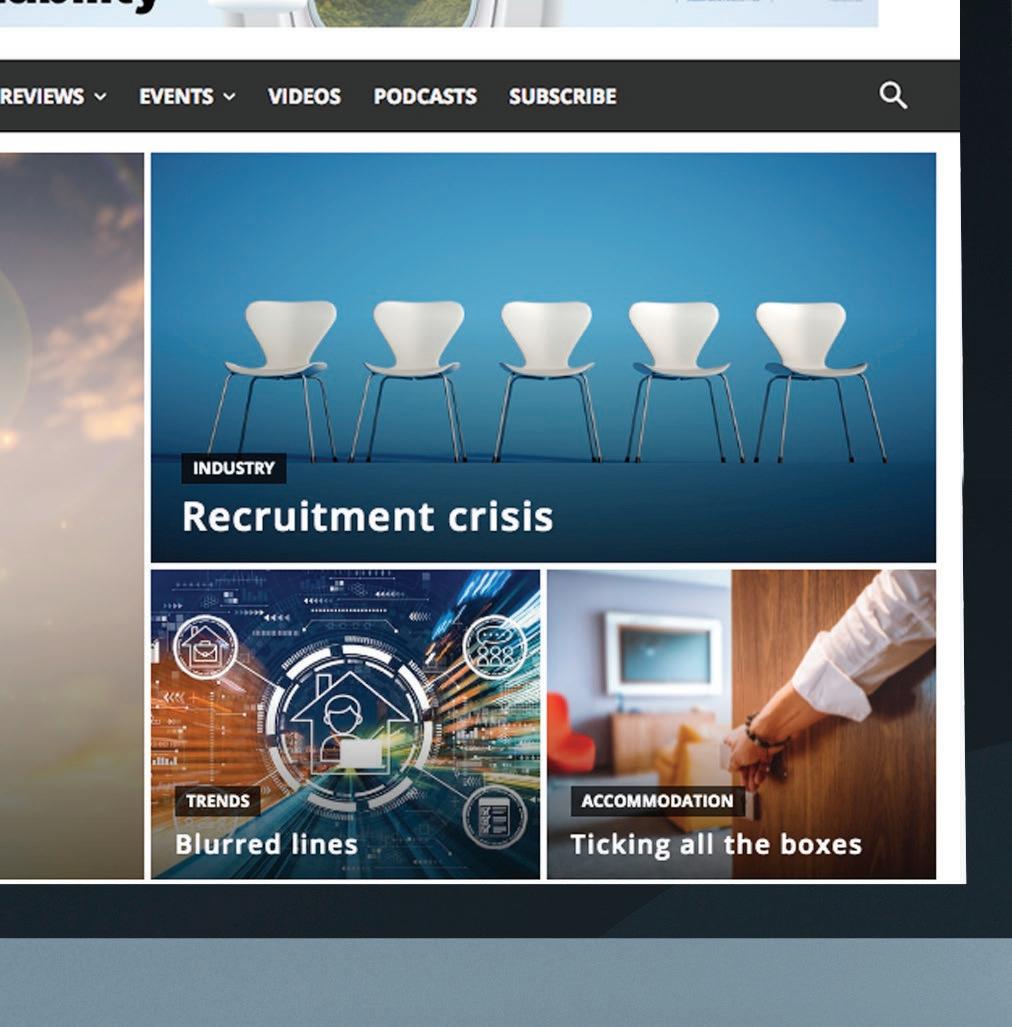



strategies. In reality, I predict a constantly changing mix of the above, combined with factors we don’t yet know about!
For TmCs this presents an opportunity to harness and present a broader range of airlines and flights than travellers might traditionally request.
strong partnerships with a wide range of carriers and the ability to work across multiple booking channels can help give the flexibility to adapt when the unexpected happens. And if the last couple of years have taught us anything, it’s to expect the unexpected.
FlorIan V. Mueller Aviation Practice Lead, FCM Consulting
It's likely that flight prices will continue to climb in 2023 due to a variety of current factors such as overall inflation, the ongoing energy crisis and volatile fuel costs, staffing shortages leading to restricted supply and continued strong leisure demand coupled with further corporate travel resurgence.
These classic factors of supply and demand are increasing pressure on the airlines almost exclusively within oligopolies (airports, staff unions, aircraft manufacturers, jet fuel companies, etc).
outside of this, the growing demand for more sustainable travel options will also likely have an impact on pricing as airlines look to invest in solutions to decarbonise.
Furthermore, increasing interest rates may also impact on pricing for the airline industry with its significant debt load post- pandemic.
Even so, pricing would likely re-adjust downwards in response to changes in certain situations too. For example, the end of the war in Ukraine with cessation of the restricted airspace and the additional energy supply, could lead to lower prices.
Unsurprisingly, any route served by multiple airlines is usually competitive from a pricing
perspective, particularly those bolstered by new entrants. London to Boston, for example, is currently being served almost daily by six airlines (Virgin Atlantic six days a week, British Airways, American, delta, JetBlue and United daily), two of which are new entries to that market (United and JetBlue).
Conversely, travellers should expect to pay a premium on those routes where airlines have the only non-stop service or have a fair market share north of 70%. As a heavy user of those type of routes, travel managers should consider renegotiating with their airline partners.
In these times of high demand and reduced capacity, it’s recommended to book as early as possible, particularly on popular routes to secure seats and the best pricing, i.e. heathrow to dubai, singapore or Zurich. Further savings can usually be found if travellers are flexible with regards to the number of stops.
It’s essential that corporates discuss their concerns and budgets with their TmC so that they fully understand their priorities in this evolving travel landscape. They can then make any adjustments to travel policies to ensure that clients are receiving the best value and most relevant content to support their business travel requirements.
Peter GroVer Director of Marketing, TRIPBAM
While TrIpBAm’s data is based on analysis of historical and present-day airfares, we can draw some conclusions on what will happen based on how things are trending at the moment.
We started off the year with really depressed fares. Then, over the summer, we saw prices climb across the board because of a spike in leisure demand. Everybody wanted to be travelling again and there was only so much the airlines could do to meet that demand.
now that we’re in autumn, we’re seeing airfares softening. What’s being booked are the traditional business travel fares you’d expect to see this time of year.
It would be a mistake to assume that softening means ‘cheap’. Business travel demand is still strong. Jet fuel prices are 74% higher than the same time last year,
according to IATA, and there are availability issues for both aircraft and airline staff.
Airfares are likely going to keep climbing. For long-haul international city pairs, pricing never softened – average segment prices were 14.9% higher as of early september than they were back in may.
so what is a travel manager to do? revisit 2023 air agreements if you haven’t already done so. do company travel patterns match what was put in place last year, two years ago or before the pandemic? Are contracts providing their intended value?
Benchmarking is critical. For things like value-added traveller benefits, airlines typically provide those based on historical volumes. That’s irrelevant for companies that haven’t been travelling, so travel managers should negotiate like it’s 2019 for their most important travellers.
Finally, travel managers need to look at measures they can take to save money, including putting in place trip avoidance measures. Cutting total company trips can be the best way to truly reduce costs in this challenging environment.
among city pairs departing from
into Europe from the mid-point of
2022 to the midpoint of
2022
The growing demand for more sustainable travel options will also likely have an impact on pricing as airlines look to invest in solutions to decarbonise”
trenDS





Striving for sustainable business travel was the theme of the informal after-dinner discussion at the last Dinner Club of 2022. Travel buyers and industry partners enjoyed a three-course meal and networking at The Corinthia, followed by a passionate talk from Nico Nicholas, CEO and Co-Founder of Trees4Travel. The event was kindly sponsored by United Airlines, Premier Inn, Reside Worldwide and Sixt Rent a Car.



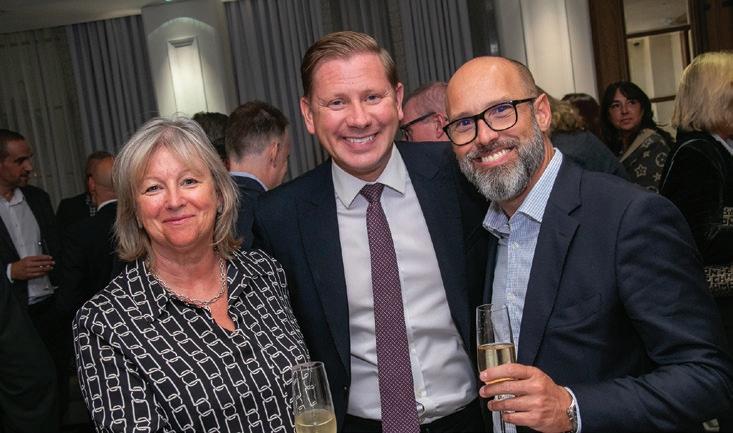
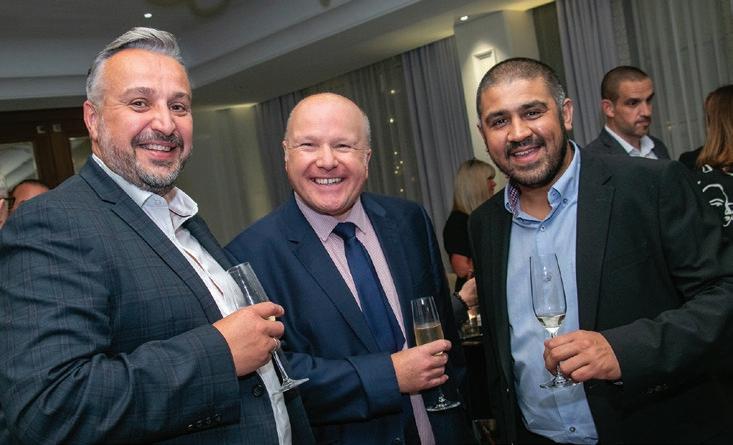

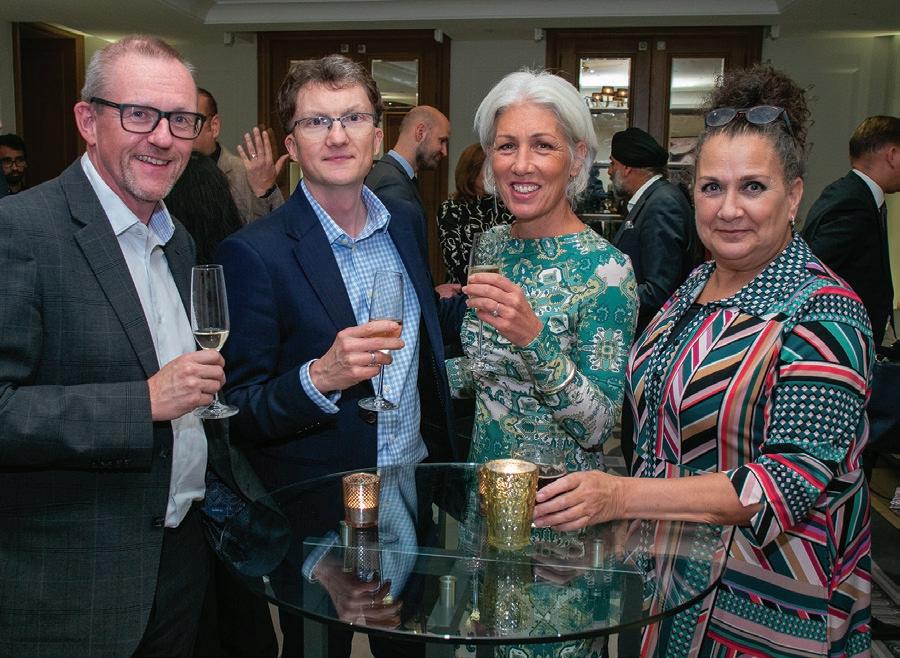

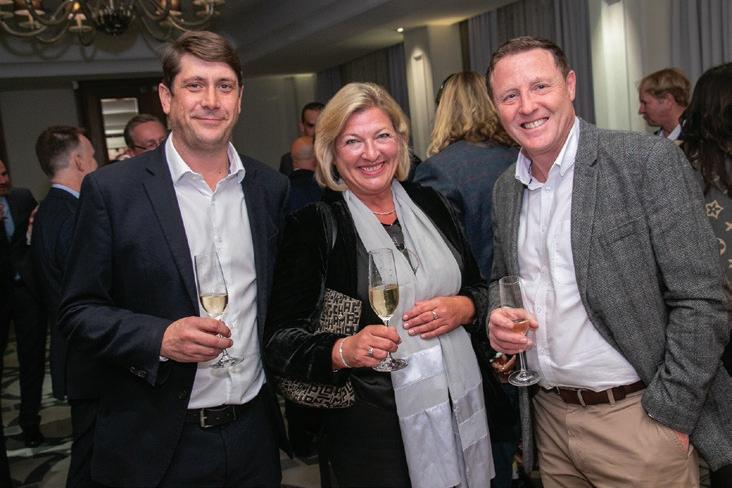

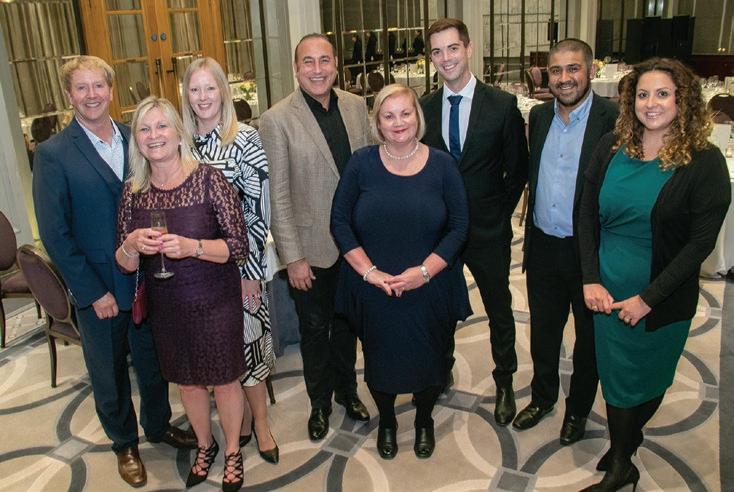
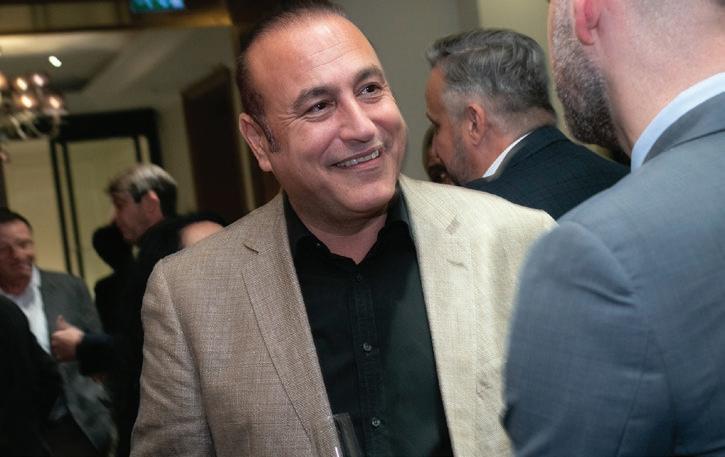

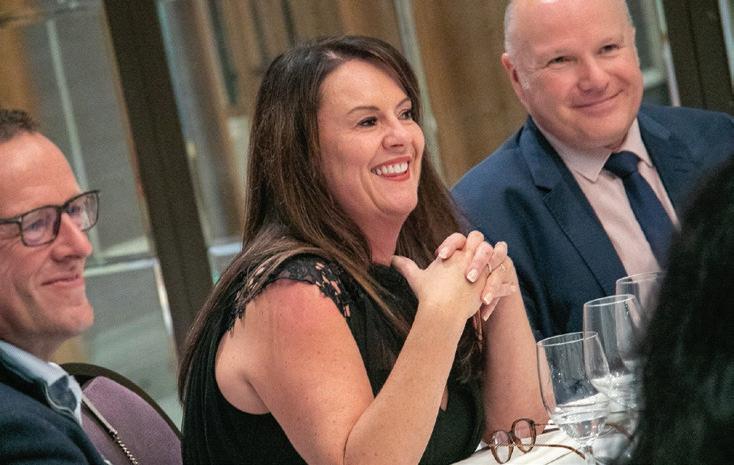

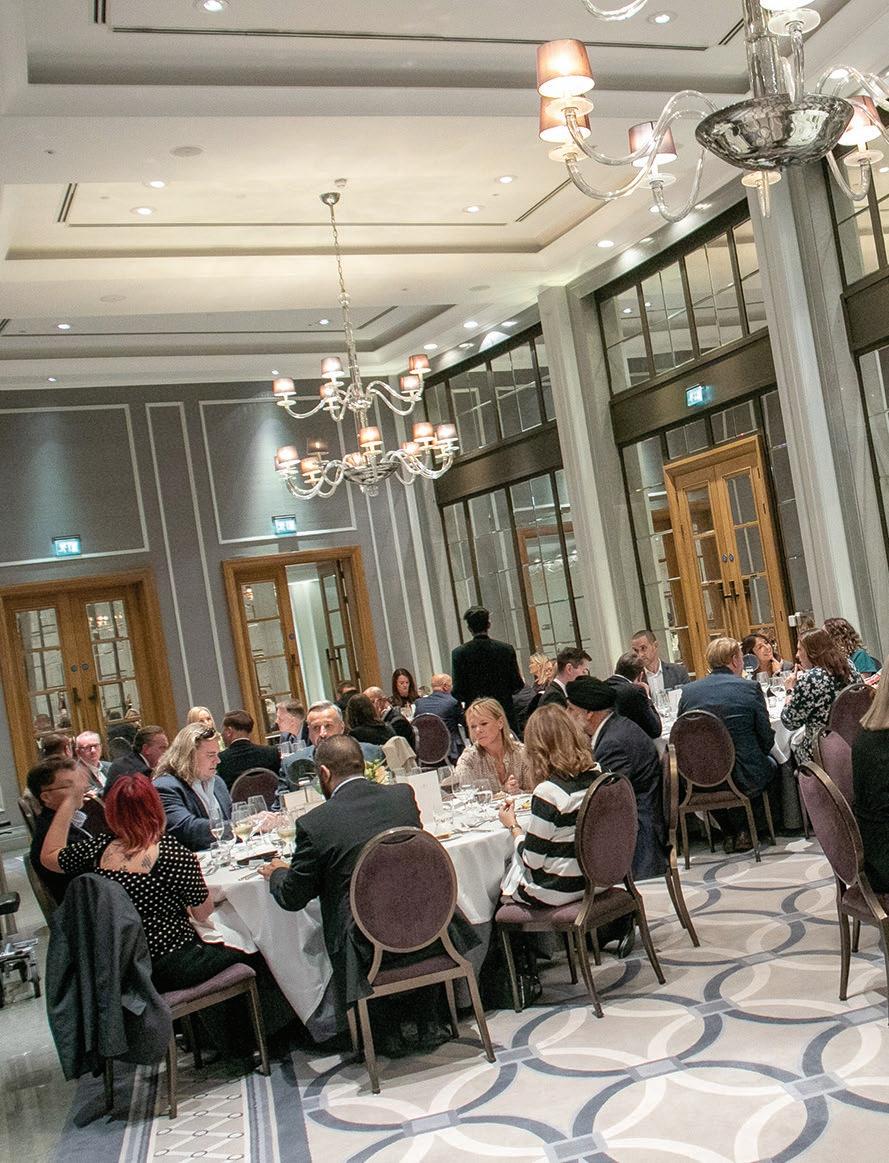
Travel managers, travel management companies and suppliers from all corners of the industry joined together in London for a night of celebration at this year's prestigious Business Travel People Awards. Congratulations to all the winners
MORE than 250 people gathered in London on September 13th for the 2022 Business Travel People Awards to celebrate the achievements of teams and individuals working in the industry. Winners were announced for 17 categories, six of them new for this year, including an award for Sustainability Champion, Travel Technology Innovator, DE&I Champion, TMC of the Year and Travel Buyer of the Year.
There was also a new Chair’s Award chosen by the Chair of the Judging Panel, Leigh Cowlishaw, to recognise an individual or team that demonstrated particular excellence.
Cowlishaw, Managing Partner of consultants Black Box Partnerships, said: “Our people continue to inspire and underpin the recovery of our industry as it continues to face and overcome new challenges and embrace new opportunities.

“With industry staff shortages one of the main concerns, it is absolutely key for us to focus on our people, who are the heart of all that we provide.

“Whilst we continue to see technology evolve and automation increase, we all know this is the enabler but our people are the catalyst.”
Now in their 11th year, the awards ceremony took place at the Leonardo Royal London City. In a first for the People Awards, the Rising Star accolade was given to all three finalists – Georgia Suttie, Agiito, Sinead Ryan, ALTOUR UK, and Laura Garton, Synergy.





“At a time when our industry is working


hard to attract new talent, the judges felt they were all excellent examples of everything that’s great about working in our sector and agreed that all three deserved to be named as Rising Stars,” said Bev Fearis, Editor of The Business Travel Magazine.



The Business Travel People Awards will be presented at a glittering ceremony at the Grand Connaught Rooms in London’s Covent Garden in 2023.

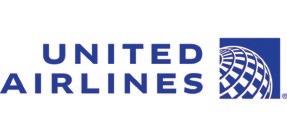



It is the first time the awards will be held at the venue, which underwent a £700,000 refurbishment just before the Covid pandemic.
The evening ceremony will take place on Monday September 25, starting with a drinks reception with canapés followed by a sit-down meal in the Grand Hall, during which the winners will be announced. Afterwards there will be time for more networking and celebrating.




“We’re so excited to be holding the 2023 Business Travel People Awards ceremony at this glamorous venue,” said Kirsty Hicks, Publisher of The Business Travel Magazine and organiser of the awards. “The Grand Hall at the new-look Grand Connaught Rooms is the perfect place for our prestigious awards. I can’t wait to see you all there.”
For sponsorship opportunities and more information, contact Kirsty on kirsty.hicks@bmipublishing.co.uk


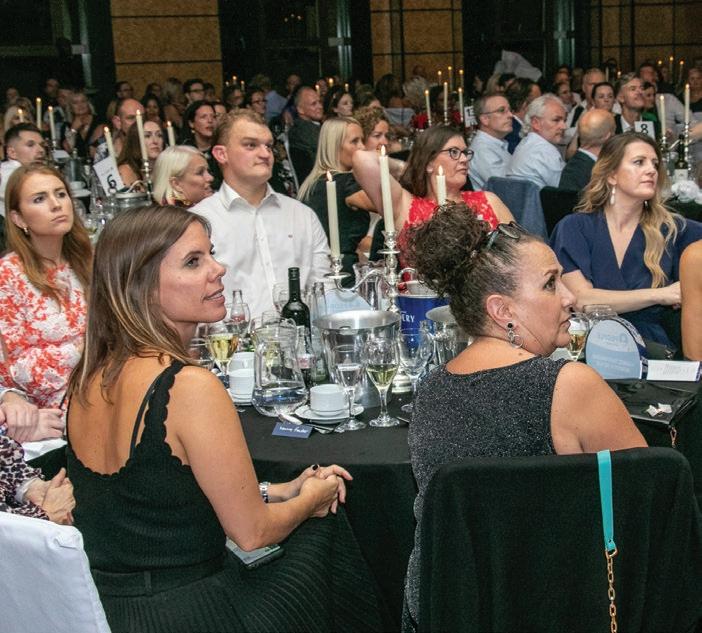
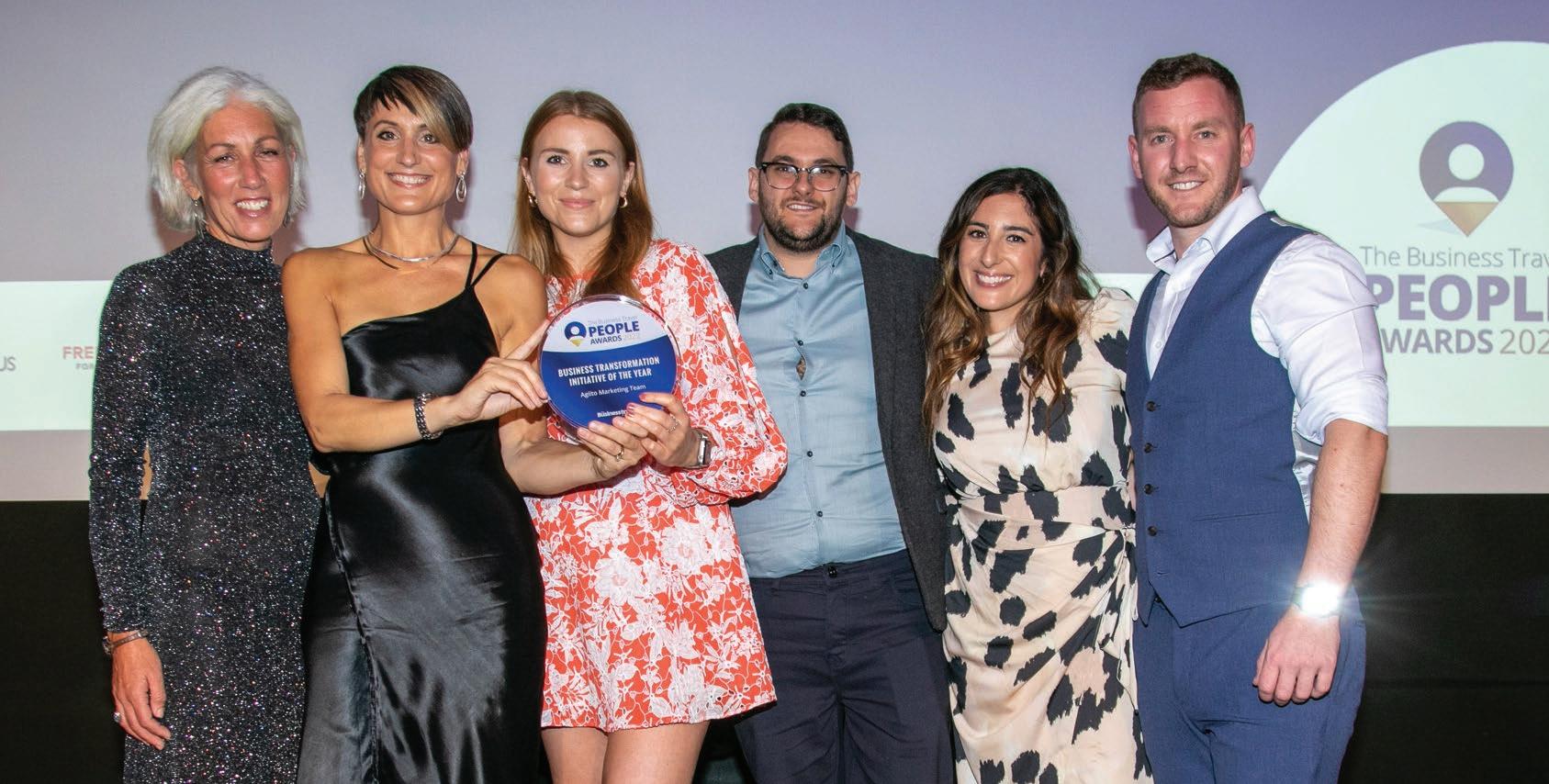
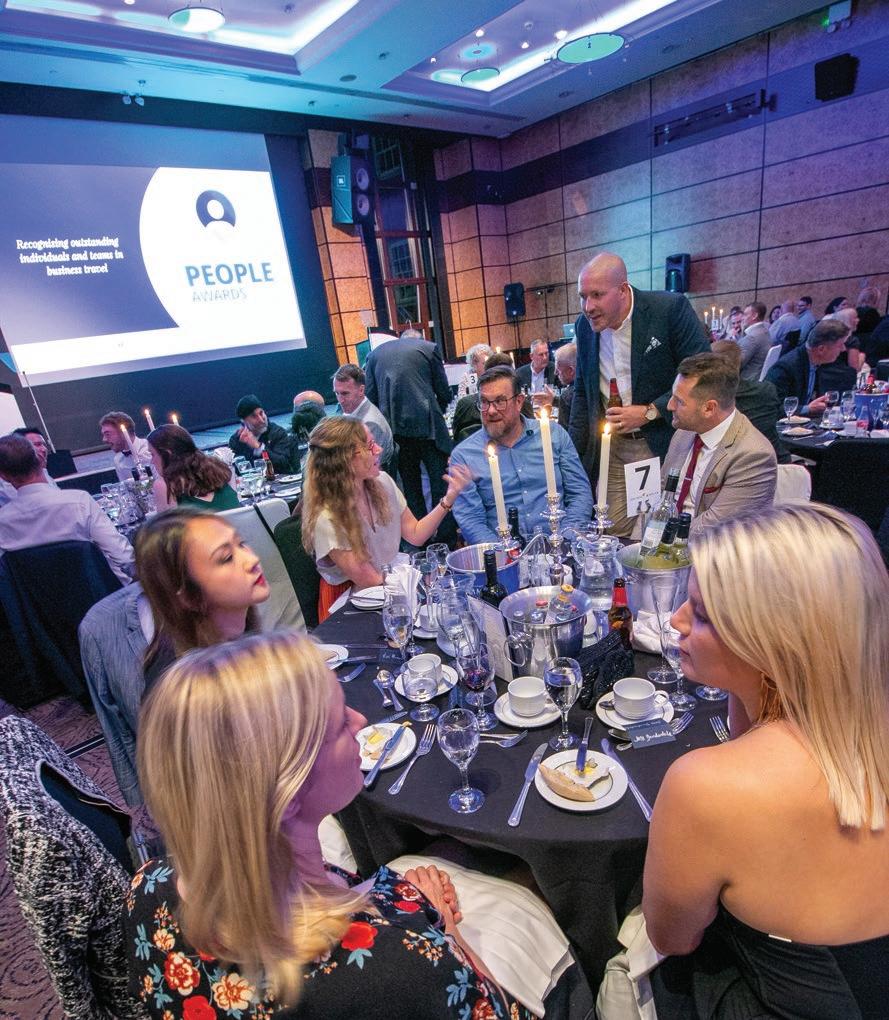
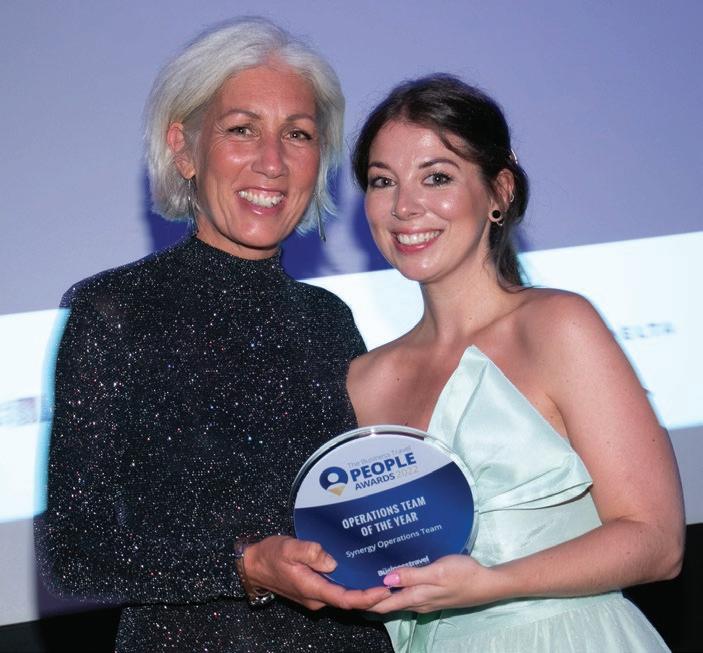
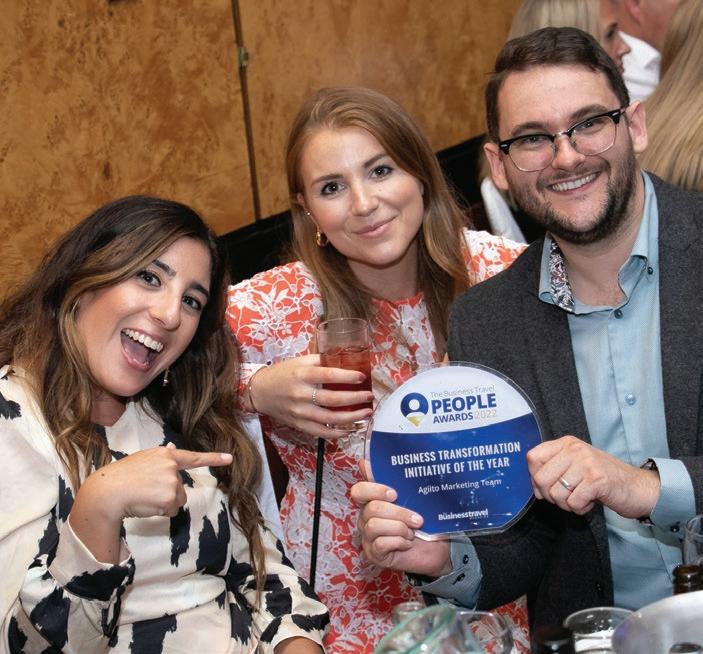
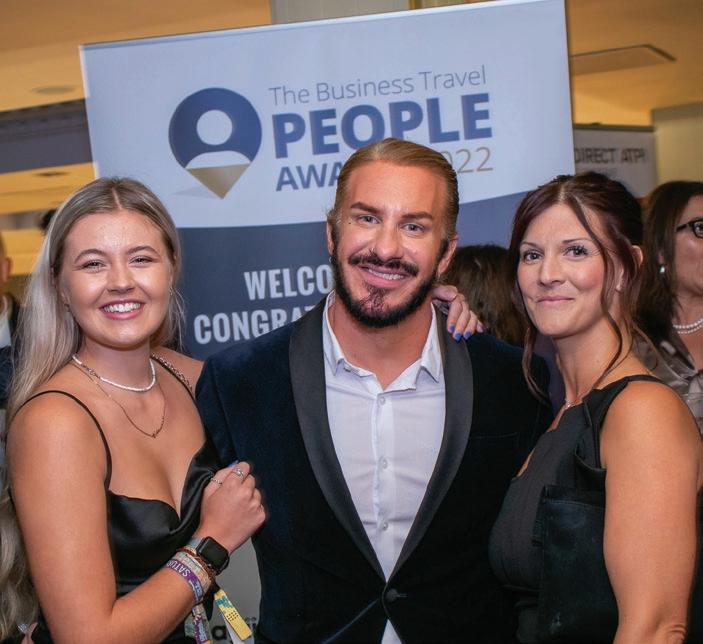
The judging panel agreed that Agiito's marketing team did an excellent job of overcoming the challenges of launching a new brand from scratch in a limited time and with a limited budget –and during a pandemic. The judges noted that throughout the process the team managed to ensure the right engagement with both their colleagues and the TMC's customers and, as a result, managed to successfully launch a new name, brand and creative identity.
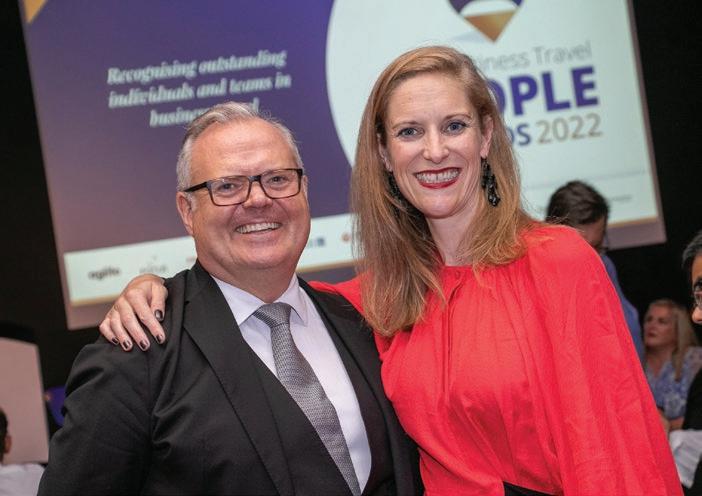
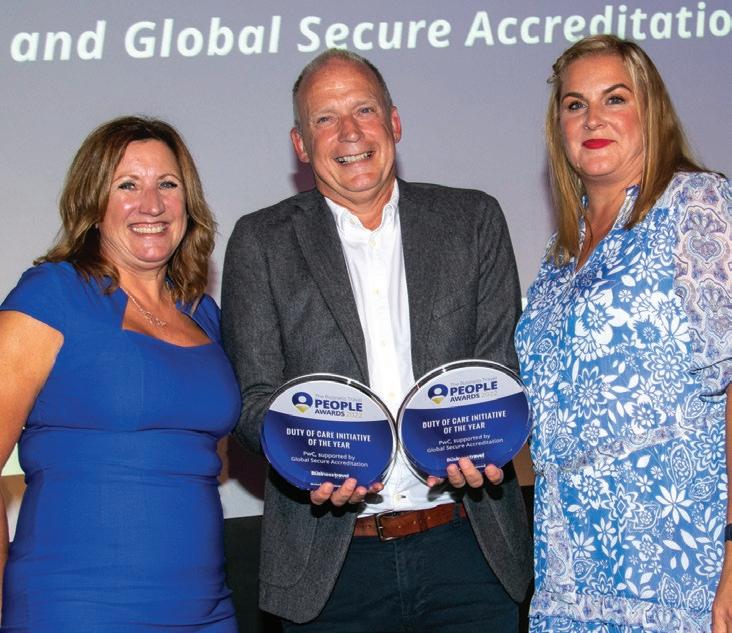


This highly-impressive submission focussed on how accountancy giant PwC became the first company to receive certification under the GSA's new ISO 31030 Organisation Readiness Assessment and Audit Programme. It demonstrated PwC's desire to do better by setting a precedent and give direction for the whole industry.















BUSINESS. TRAVEL. LIFE. CHANGE IS INEVITABLE IN AL L. WE’VE GOT TRAVEL COVERED.
Giving you confidence in extraordinary service and smart tech across the globe. Taking care of your travel so you can take care of your business.


PERSONAL SERVICE. SMART TECHNOLOGY.












REACH.
The judges loved the way Dana brings customers and suppliers together, making a difference to Agiito and the wider industry. Her quest for greener solutions and the precedent set for customers and partners led to her being promoted to a dedicated sustainability role. She questions everything and everyone to drive change and do the right thing.













This new award, sponsored by United Airlines, was closely contested but the judges chose Carol Fergus as the ultimate winner for her relentless campaigning, both within Fidelity International and in the wider business travel sector. She has a passion and commitment for DE&I that will continue to bring positive change.

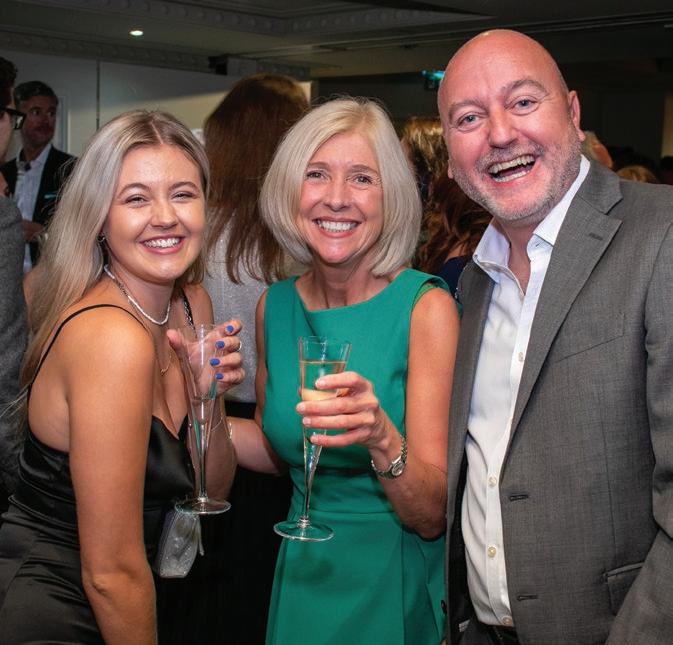

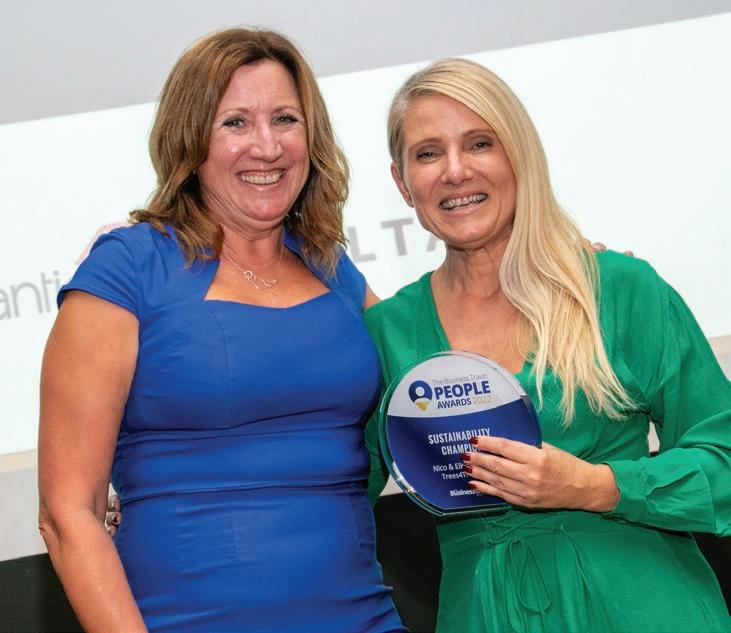

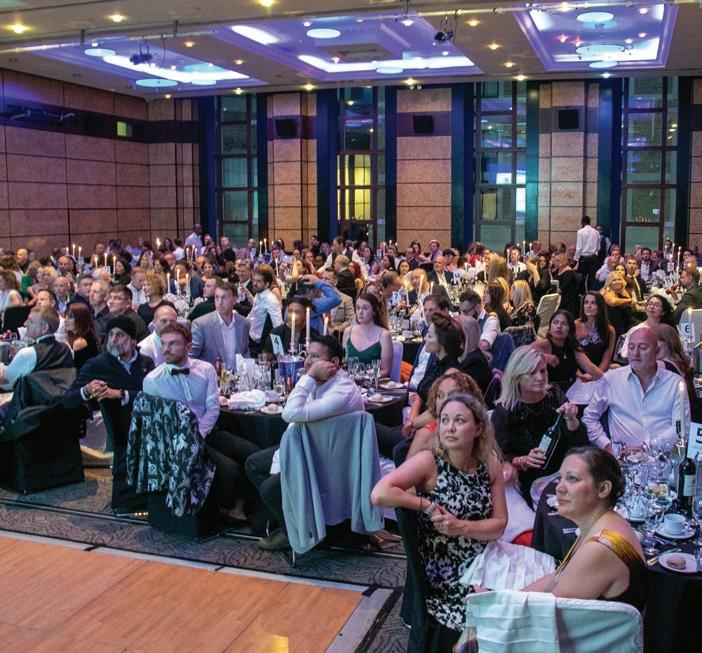

The judges admired how Chris has led Travelogix to develop solutions that are helping the industry evolve and understand the data that is driving change to travel behaviours, while also delivering access to duty of care technology that was previously cost-prohibitive to some parts of the sector. This new award was sponsored by TripStax.
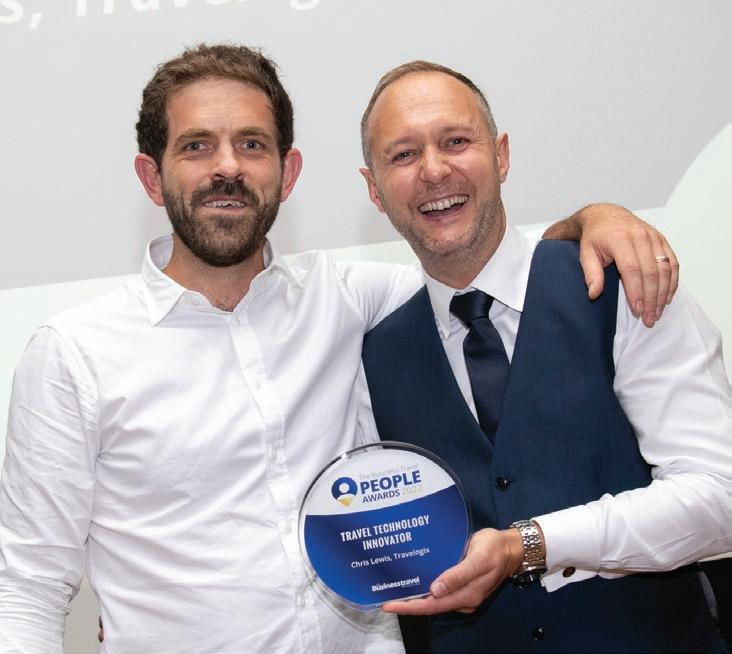

Sponsored by Virgin Atlantic and Delta, this award went to a couple who champion sustainability on a personal level and have had a major impact on the industry with a company that was created during the pandemic. The strong testimonials provided in their submission stood out and they were even praised in some of the other entries as partners.

In a first for the awards, all three finalists were named as Rising Stars, having made such a big impression with their energy, enthusiasm and sheer passion for their roles and for the wider industry. They have also become the first Business Travel Ambassadors. See pages 44-45.

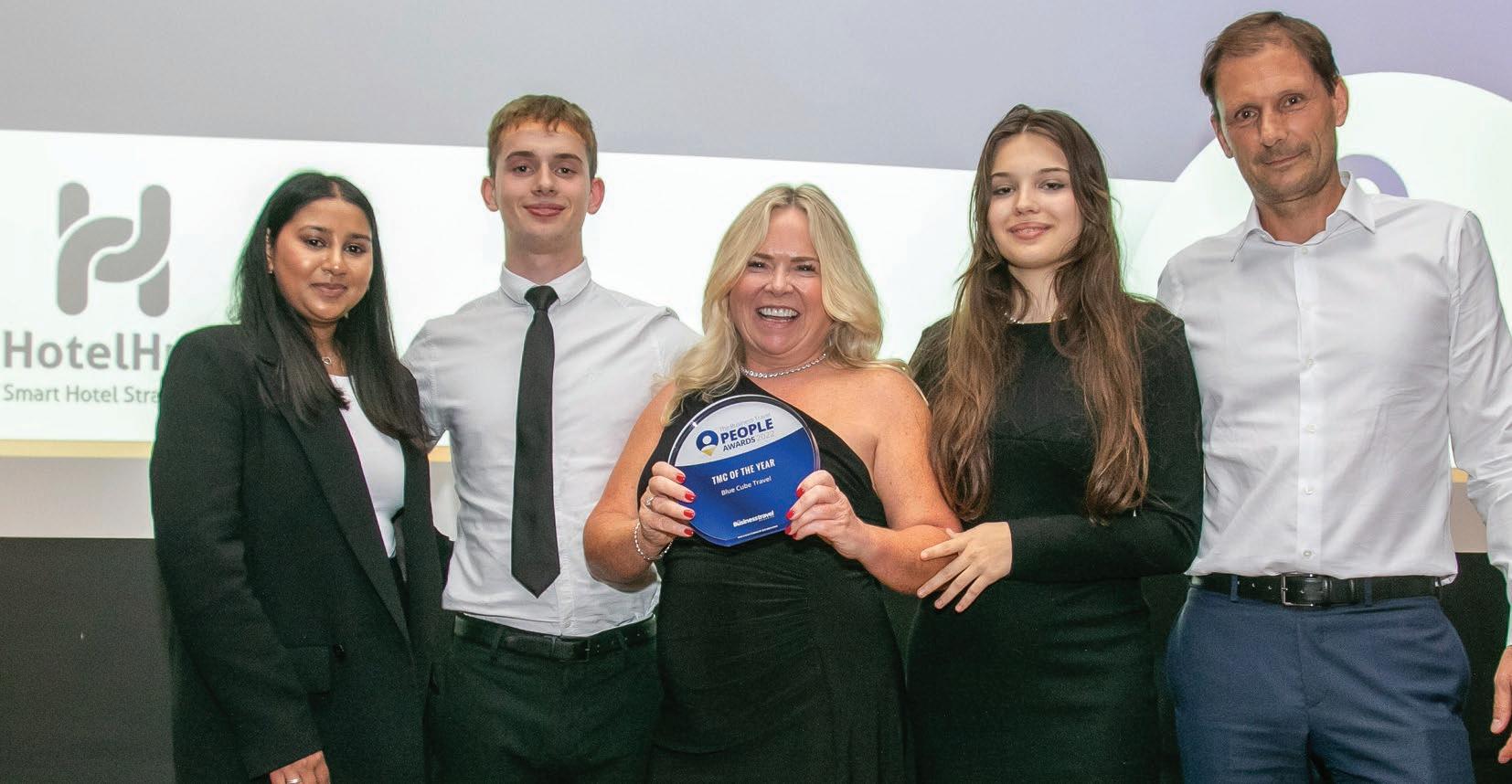
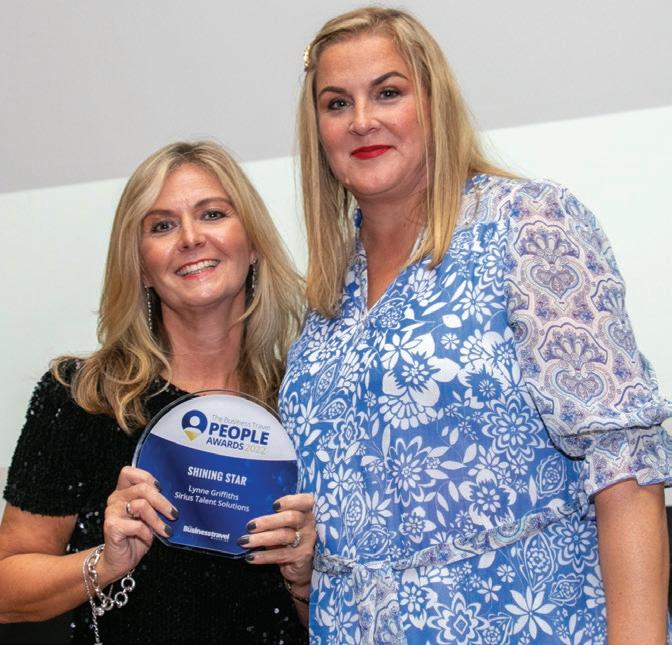
















This new award, sponsored by HotelHub, was given to the team at Blue Cube Travel who impressed the panel of judges with the way they helped their clients with Ukraine-based offices following the Russian invasion. They were also commended for the work they do in the community, how they support local charities and how they nurture young talent and support their existing staff with a 'Culture of Kindness', which is clearly paying off as they have a waiting list of people wanting to join their team.

RISING STAR GEORGIA SUTTIE, AGIITO SINEAD RYAN, ALTOUR UK LAURA GARTON, SYNERGY
CHAIR’S AWARD CAROLYN PEARSON, MAIDEN VOYAGE Carolyn was chosen as the clear winner for this new award, which was introduced this year to recognise an individual (or team) who has continued to clearly evolve, to make a difference not just to themselves and their business but to the wider industry, whilst trailblazing new ways of working and influencing change across the whole sector.








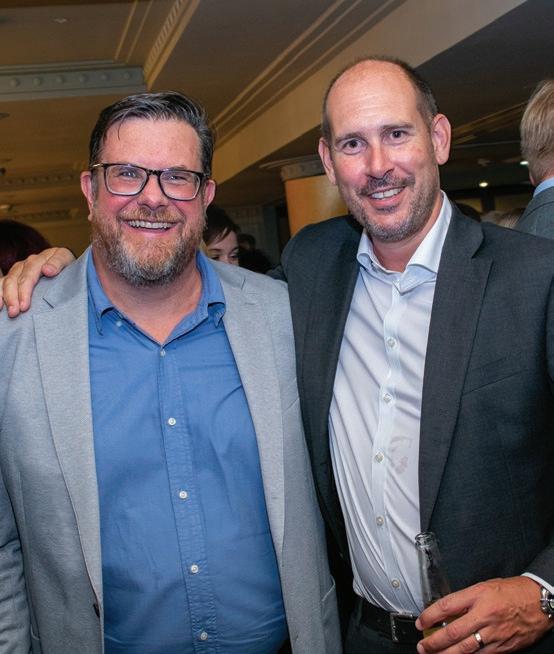
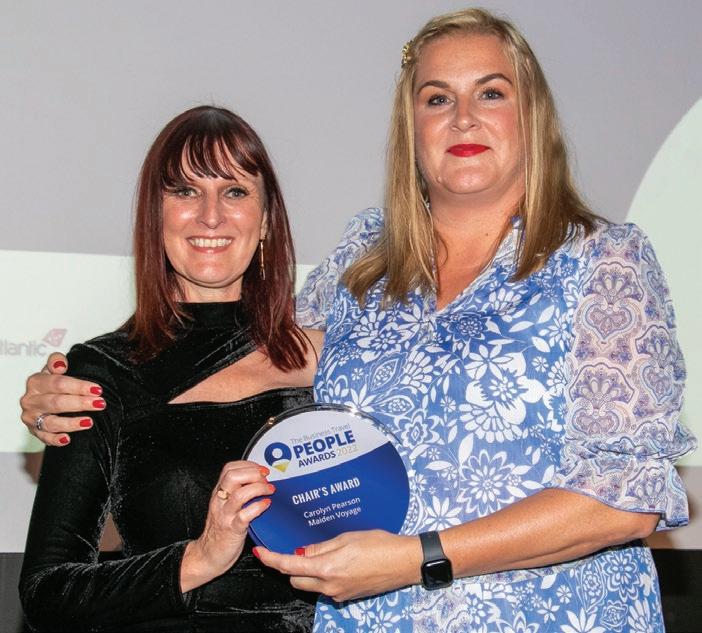
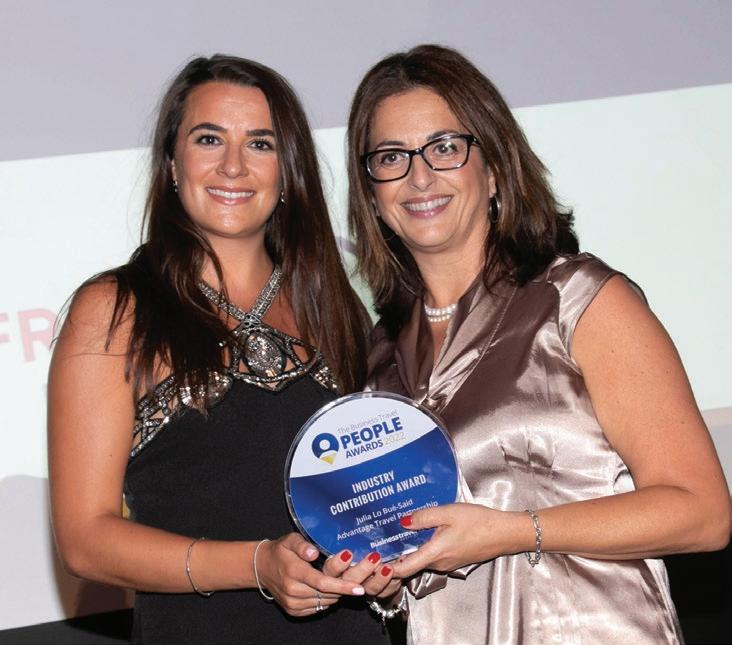






The judges voted Christina as the winner of this new category, sponsored by Agiito, particularly admiring her approach to keeping her travel community informed and supported during the pandemic and her passionate drive to bring sustainability on to the agenda, ensuring engagement with colleagues, suppliers and the wider industry.
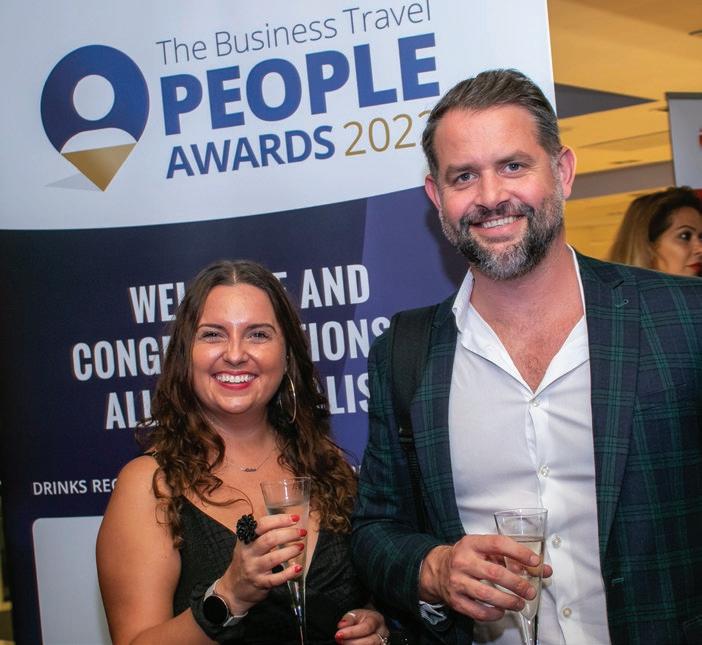
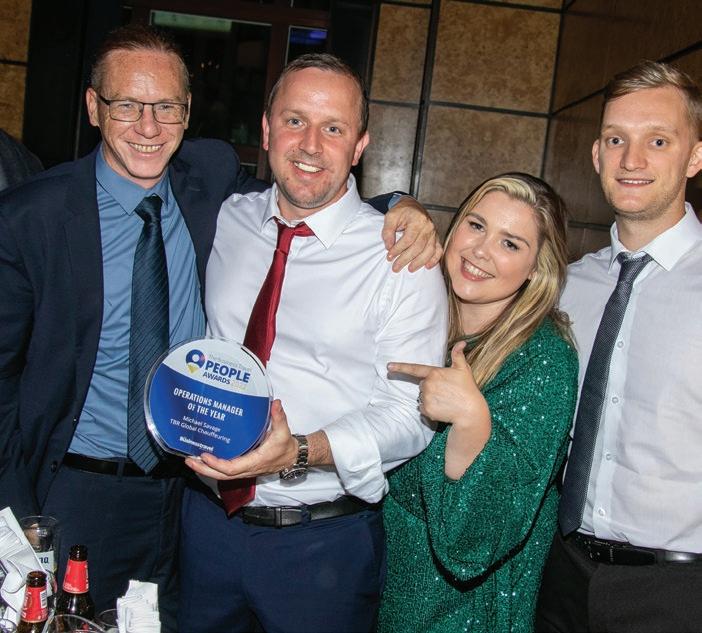
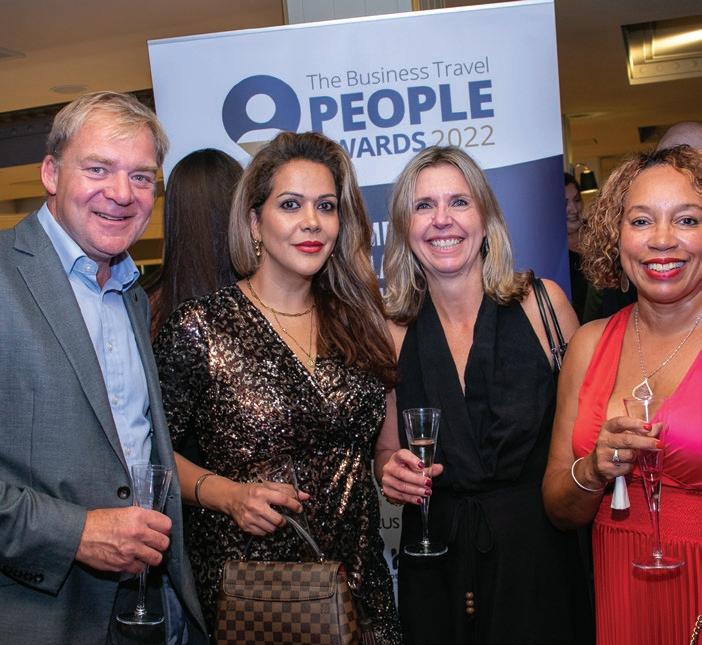
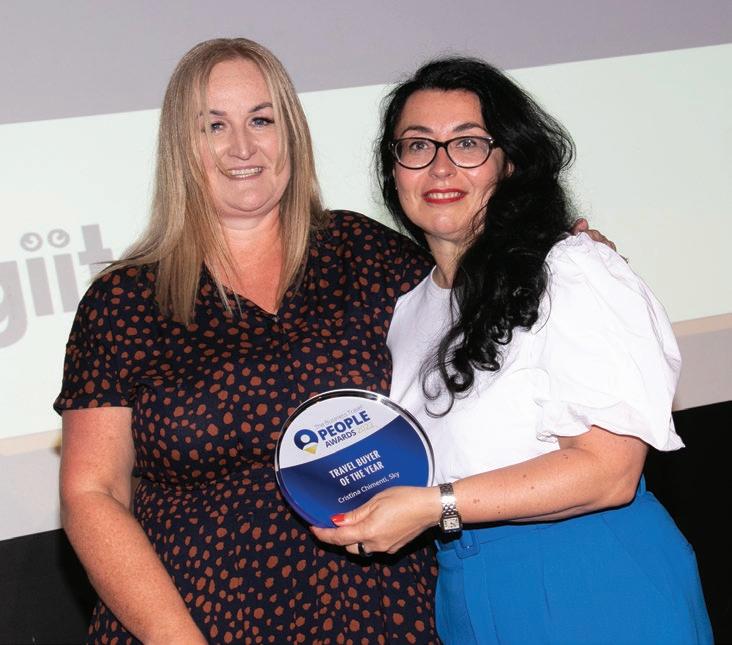
The panel found it particular tough to judge this category, sponsored by FREE NOW, but agreed that Julia’s was an outstanding submission, clearly documenting her contribution to the industry during and since the pandemic. They all agreed that Julia is fantastic leader, who not only talks the talk but also walks the walk.















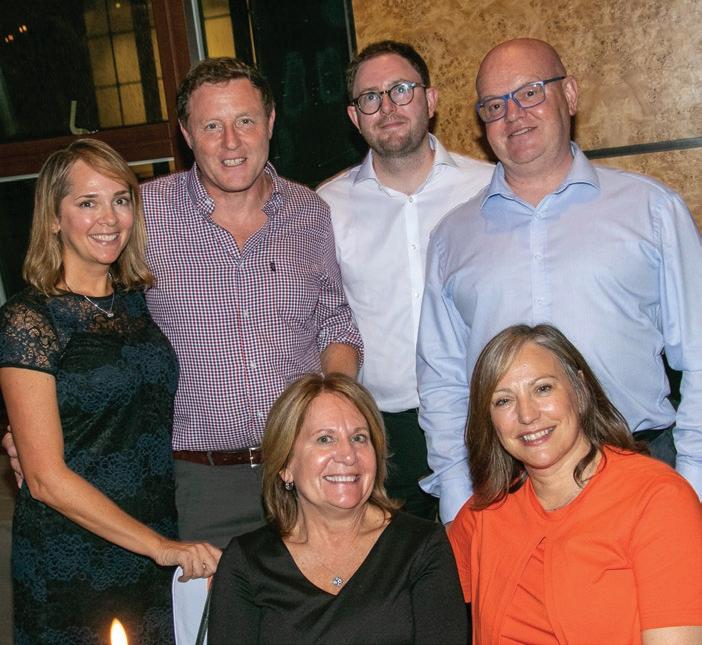

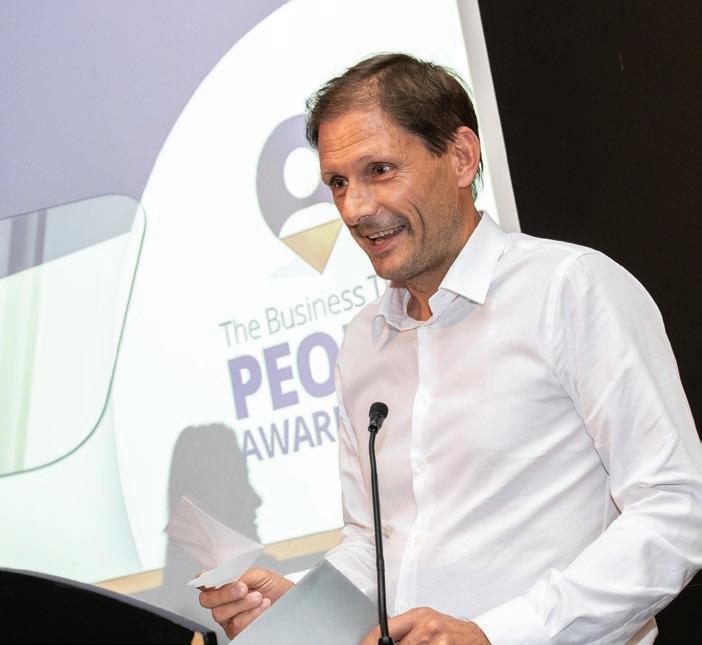



Professionals from across the industry have signed up to join a campaign to help attract new talent into business travel.
The ‘Business Travel Ambassadors’ campaign gives a platform to people at all stages of their careers to share their stories in order to raise the profile of business travel and encourage potential candidates to pursue a career in the sector.
Spearheaded by The Business Travel Magazine and supported by the BTA, ITM, GBTA, Advantage Travel Partnerships and Focus Travel Partnership, the initiative is designed to help solve the talent shortage being faced by companies across the whole eco-system.
It was announced at the 2022 Business Travel People Awards in September, where the three winners of the ‘Rising Star’ award were invited to become the first official Business Travel Ambassadors.
“Even before I had got home after the awards ceremony I was contacted by people wanting to join the campaign. The support has been amazing,” says Bev Fearis, Editor of The Business Travel Magazine.



“Our Ambassadors come from all corners of the sector – travel managers, suppliers, associations and TMCs – and range from those early in their career to CEOs and business owners. But they all share a love for their jobs and for the travel industry and want to help promote business travel as a rewarding, fulfilling and enjoyable career.”
Ambassadors will be invited to speak at conferences, webinars, and careers events in schools, colleges and universities, and their stories will be shared in The Business Travel Magazine, its podcasts, website –
thebusinesstravelmag.com – newsletter and on social media.
Here’s what the three Rising Stars and just some of the many other Business Travel Ambassadors had to say about why they love their jobs, why they’re supporting the campaign and what they hope to achieve...
We need to continue shining a light on the vital role corporate travel plays in the broader economy. I also think we all need to get out into our local communities – schools, colleges and universities – to showcase the benefits of working in corporate travel. I have had the opportunity to visit some amazing places which I never would have been to had it not been for working in this industry.

Venue Find Operations Manager, Agiito
Travel is a fast-paced environment where each day brings new opportunities and challenges. By being a
Business Travel Ambassador I want to inspire, motivate and educate our current and next generation and be a voice for the venue find and events sector within the business travel industry.



Sales and Marketing Executive, Synergy Global Housing
I want to raise the profile of our industry and the varied job opportunities available and inspire those who may have similar interests to me who haven’t yet considered business travel as a profession. I believe there is more of an opportunity to achieve this by attending freshers fairs and career events where our ambassadors can have one-on-one conversations and education sessions with people who are genuinely interested in finding a good job.

Manager CBS - Workplace Services, Deloitte LLP
We need to change the perception that the travel industry is just about booking a holiday. There are thousands of different jobs outside being a travel agent. We need to truly highlight all the roles that are available on both the leisure and corporate side and the skills necessary. We also need to let people know what a tight knit community the industry is, and how you have to be so multi-skilled to be able to work within it at a higher level.
Travel Manager, Oil Spill Response Limited
We should be shouting about what we do from the rooftops. I know there is great work being completed by industry bodies around advocacy and lobbying the Government, however parallel to this we need to be engaging with careers fairs, universities and with courses in the travel and tourism space.

Founder and CEO, Sirius Talent Solutions
I love working in travel because no two days are the same. When I started out, we had so much fun and lots of travel opportunities. It is a people business

Head of Account Management UK, ALTOUR
Support has flooded in for our new campaign to promote business travel as a career choice
and we are very sociable with teamwork at the heart of what we do. It takes everyone to make it tick and that’s why business travel is such an amazing industry.

If you love what you do, it doesn’t feel like a job. I love working with people, solving problems, developing others, driving change and winning, and travel is a world where you can achieve all of that. My career – in fact my life – has been travel and I would love to support and encourage as many people as possible to have a career like mine. I am very privileged and I owe it to the industry.

What I love most about working in this industry is the people. It is such a lively, social industry. You get to speak with so many companies and cultures. Also I’ve got to travel the world and share that with family and friends. That is simply amazing.
When I did my course at college it was still focussed on the leisure side of the business. It didn’t showcase the travel industry as a professional career. I think the industry could be presented better, like roles within other professional industry services.



We need to be part of the education process. Even those who study travel, tourism or even
transport typically don't know anything about the travel industry. We don't need specialist qualifications but we need to be part of the conversation. Generalist roles –whether HR, finance or digital roles such as systems architecture – can all be part of the travel ecosystem once they know it's an option.
The business travel industry needs to share the same space and platform as those of the leisure travel side to show people that there is a different side to ‘business travel’. Whenever spokespeople are selected for travel matters, the voices of the business travel industry should be heard, not just leisure travel.
 guy Snelgar Global Business Travel Director, The Advantage Travel Partnership
guy Snelgar Global Business Travel Director, The Advantage Travel Partnership



The industry needs to talk about itself, get in front of people looking at a career in travel and explain what we do and how varied, fast-moving and diverse business travel is. Currently I think many studying travel and tourism think they have two real paths open – leisure travel or hospitality. We need to get business travel into that discussion and help potential talent understand the sort of roles that could be open to them.
Chief Commercial Officer, Agiito
I don’t feel the business travel industry is as cohesive as it could be and rivalry amongst agents and ‘smoke and mirrors’ can distort the true value. I want to be an Ambassador to share my enthusiasm and experience in the sector, transferring this into tangible career paths for fellow industry professionals

I would like to inspire a new generation to join our sector, but most importantly to inspire those already here to want more and demand more in terms of personal and professional development. I also hope that all those companies making commitments about DE&I not only look at recruits but most importantly develop and promote these groups from existing staff.
Director of Technology and Transformation, Blue Cube
I want to tell people that this is an exciting service industry to work in. There is scope to undertake many different roles. You don’t just have to be a travel agent. In my career I have been to places I would not have gone to, met a wide range of people and done interesting things in IT.
We need to be part of the education process. Even those who study travel, tourism or even transport typically don't know anything about the travel industry”
While some US cities can overwhelm with their size, Boston is walkable and has a welcoming small-town feel. It is also one of the ‘closest’ American cities to the UK and is now served by 91 weekly direct flights. Boston's diverse neighbourhoods, rich history and lively culinary scene also add to its appeal, writes April Waterston
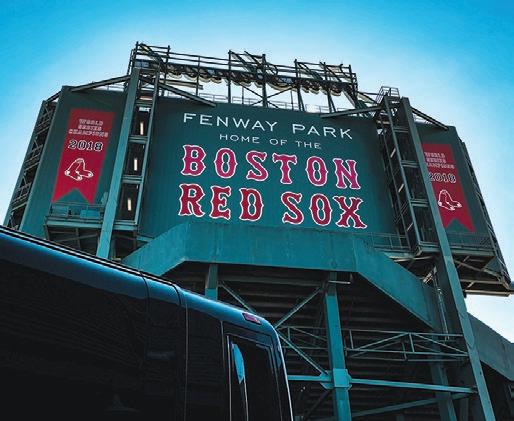
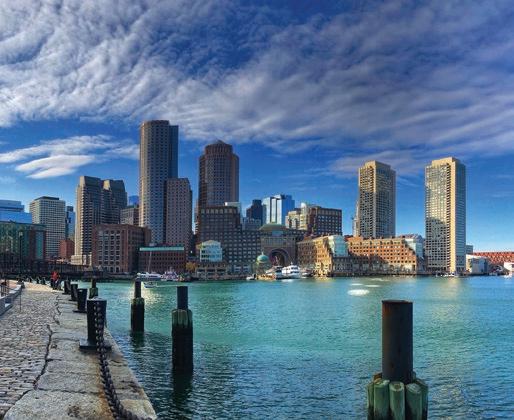

New to Boston's hotel stock this year is a 272-room CitizenM in the West End neighbourhood and a 340-room Marriott Moxy Hotel in the Theater District, which has 'Wicked Awesome View' corner rooms with panoramic city views from two sides. Serviced accommodation provider 3Sixty (stay3sixty.com) offers a variety of apartments throughout the city from around $200 a night.
dishes are focussed around the catch of the day. Lobster, clam chowder and oysters are restaurant staples while classic American diners serve signature burgers and Boston’s famous baked beans. Check out the Time Out Market for options galore. For a more formal experience, head to Yvonne's for small plates and cocktails or Bistro du Midi for some real show-stoppers.
a city mad E for W alking
of the public transport system known locally as the 'T'. That said, walking is always a good option, with Boston regularly ranked as one of the USA's most walkable cities.
United Airlines launched daily flights from London Heathrow to Boston Logan Airport in April. Also new for this year, JetBlue now flies daily from both London Gatwick and Heathrow. Virgin Atlantic, Delta Air Lines, American Airlines and British Airways also fly to Boston from Heathrow.
As a coastal city, seafood is bountiful and some of Boston’s signature
A lively theatre scene features everything from Broadway favourites to the acclaimed Boston Ballet. For after work drinks, Quincy Market boasts a great selection of bars and pubs.
All of Boston's downtown areas and neighbourhoods are accessible by train, bus, subway or ferry – all part
Take in the skyline from the water on a Boston Harbour City Cruise. Daily sailings include lighthouse and sunset cruises as well as private charters and whale watching. For a bit of history, check out the New England Aquarium, the Museum of Science, Franklin Park Zoo and the Harvard Museum of Natural History.

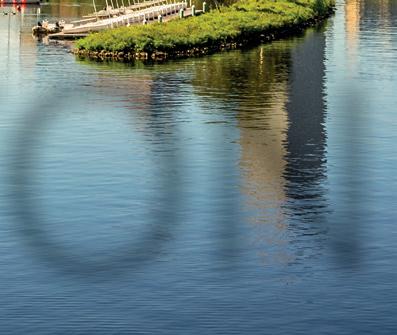
and JetBlue are teaming up for a one of a kind
and
10 lucky agents the chance to win a spot on a
Avis and JetBlue FAM Trip to the Big Apple AND Boston!
as we travel from London to New
You will get to experience
and then back again from Boston. Avis will let you experience first hand the customer journey from

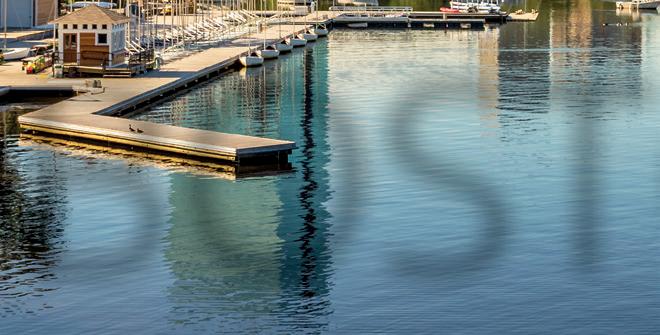

All you need to do is
up to
they
you between these two iconic cities!
and then
any JetBlue PNRs and Avis reservation numbers you make between 15/11/22 and 31/01/23*.

visit

will
on
for
please contact
Stratford is a contemporary hotel with a welcoming, informal atmosphere. The Adagio group is a well established joint venture by Accor and Pierre & Vacances, with nearly 100 properties across 11 countries (mostly Europe). Each offers studios and apartments with fullyequipped kitchens.
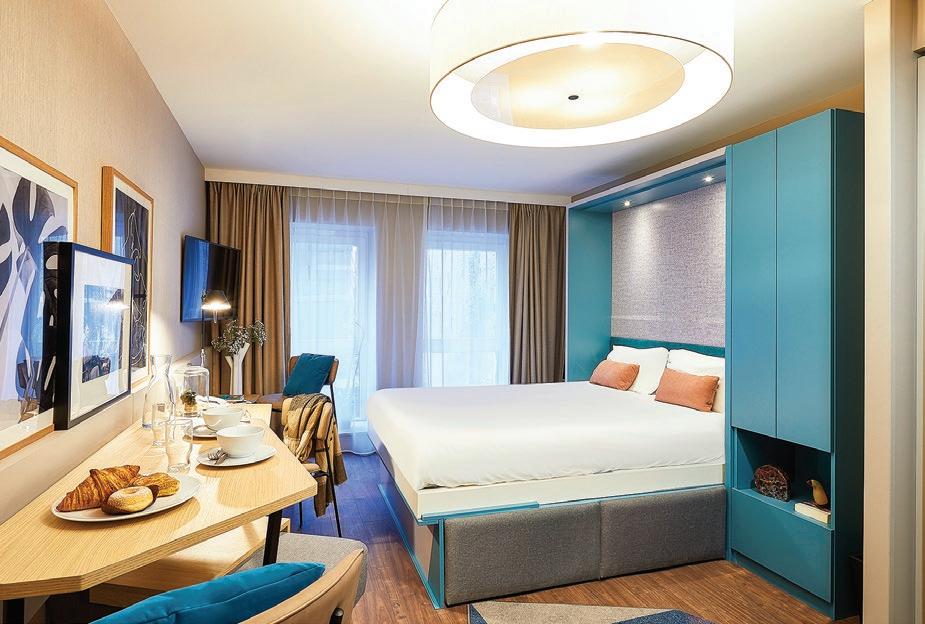
THE CHECK-IN The reception area is the social hub of the property and includes a relaxed café serving drinks and buffet breakfast. One wall features essentials to buy for those who want to cater in their rooms (although there is also a large Sainsbury’s next door). The staff were welcoming and attentive and check-in was quick and easy. Staff are available 24/7.
THE ROOM My apartment was bright, airy and cleverly-designed to include kitchenette, bathroom, separate toilet, bedroom and sitting area (with double sofa bed) within a relatively compact space. The décor was stylish, and modern with wood effect floors,
geometric patterns and bold colours. The kitchen was well equipped and the dining table doubled up as an extra workspace. It felt like a lot of attention had been given to making the very best of the space available.
THE BUSINESS There was free Wi-Fi throughout the hotel and plenty of very secure on-site parking. The car park is accessed via a car lift, which is a novel if somewhat temperamental experience. The hotel is well located opposite the Westfield Stratford City with easy access into central London via the Central Line. There are also easy connections to Southeast trains and Stratford International.
THE FACILITIES The central reception doubles as the lounge and social area and is dressed as a home, with modern seating areas for dining and relaxation. Themed events are sometimes held here and there is table football to support the socialising. Beyond this there is a laundry for guest use and a small gym.
THE VERDICT This was a very userfriendly property in a useful location. The style was fresh and contemporary with an informal, relaxed vibe but the facilities were well thought through and comprehensive.
THE DETAILS Aparthotel Adagio London Stratford, 42 Celebration Ave, East Village, London E20 1DB, 020 4524 7900. Studios start from £95 per night. adagio-city.com Julie Baxter
THE FLIGHT I flew from Dubai to London Heathrow on Emirates flight EK0031 in Economy on an Airbus A380800. Flying time was seven hours and 45 minutes.
THE CHECK-IN Terminal 3 at Dubai Airport was remarkably quiet. I opted for the self-service check-in and bag drop, and was impressed to see a contactless option using a QR code to check in using my own device. The flight was completely full, but fortunately I was happy with my aisle seat allocation, and without a bag to check in I was through to security and out the other side in less than 15 minutes after arriving at the airport.
THE BOARDING I was in Group F –the first Economy group to board the plane. Despite a full flight, it was easy to find room for both my cabin bag and backpack in the overhead lockers, leaving plenty of space to stretch my legs under the seat in front of me. Whilst I was in Dubai, the mask mandate had ended, making this one of the first flights on this route without masks. Shortly
after boarding an announcement from the crew reassured passengers informing them that fresh air fills the cabin every three minutes, minimising any risk of transmission.
THE SEAT My seat, 50D, was in the front section of the Economy cabin. It was spacious and had notably comfortable legroom compared to my other recent long-haul flights. I had a blanket, pillow and over-ear headphones, which offered a good quality of sound from ICE, Emirates’ Inflight Entertainment System. I was very impressed with the variety of content on ICE and ended up choosing an audiobook to listen to – not something I would do often on the ground. It was easy to connect to the WiFi and prices were reasonable too.
THE FOOD I was served a lightlyspiced paneer curry with rice, with a side of potato salad and an Indian desert, with cheese and crackers and a bread roll. It was delicious and very filling. Later on an afternoon tea with a scone, clotted
cream, jam, and cheese sandwich proved to be an enjoyable snack.
THE VERDICT No complaints here. Efficient service, enjoyable entertainment and a truly delicious meal reflected the push to quality that Emirates always champions.
THE DETAILS A return flight from London Heathrow-Dubai in January 2023 starts from £580pp. emirates.com April Waterston

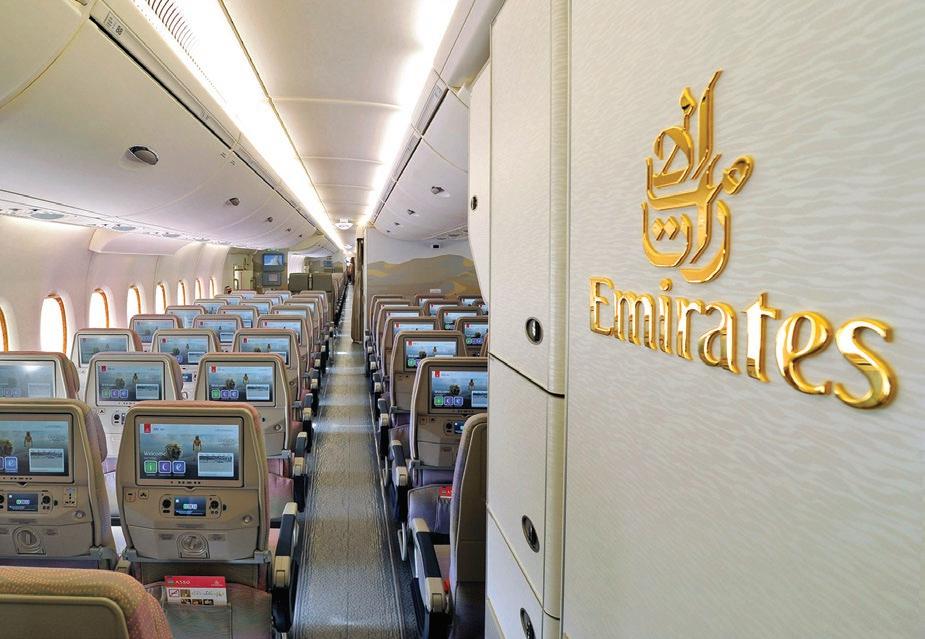

THE SEAT WAS SPACIOUS AND HAD NOTABLY COMFORTABLE LEGROOM
A LOT OF ATTENTION HAD BEEN GIVEN TO MAKING THE VERY BEST OF THE SPACE AVAILABLE
THE HOTEL Virgin Hotels Nashville is just minutes from Music Row where the likes of Dolly Parton and Elvis Presley recorded some of their top hits. The hotel is sophisticated and chic but reflects its charismatic and energetic surroundings with features such as a pool table, swinging chair, kooky library and signature red accents. The workhard-play-hard mantra continues with rooftop pool, DJ sets and well-stocked bars. It offers 262 spacious ‘chambers’, outdoor spaces for functions and several meeting spaces.
THE CHECK-IN Valet parking is available and manned 24/7. The reception area is spacious and flows through into the Commons Club, the hub of the hotel. The staff were efficient, friendly and more than happy to provide personal recommendations and directions. Ample seating, desk space, plug sockets and a coffee shop encouraged remote working.
THE ROOM My room was modern, bright and airy with floor-to-
ceiling windows and a sliding barn-style door that allowed for separate bedroom and dressing room areas, giving it an apartment feel. Furnishings were tasteful and modern with homely touches. Virgin has its own app, Lucy, which allows guests to check in, order room service, control the AC and lights and also acts as a room key.
THE FACILITIES The hotel has eight event spaces ranging from intimate private meeting areas to a dedicated event venue. There’s also the option to host a reception or cocktail hour outside to enjoy the city views. Virgin specialises in creating unique experiences and can accommodate requests ranging from ping-pong meeting tables, fitness video games, hallway mini golf and lifesized jenga. Groups of up to 50 people receive complimentary Wi-Fi and a dedicated Event Manager. The property also offers business travel rates for frequent travellers.
THE VERDICT The property has a fun and relaxed atmosphere with eccentric
features that are typical of the Virgin Hotels brand but it also has a serious side and caters well for business travellers, offering functional workspaces throughout.
THE DETAILS 1 Music Square W, Nashville, TN 37203. Rates at Virgin Hotels Nashville, a member of Preferred Hotels & Resorts, start from £155 for a double room. preferredhotels.com Jessica Pook
THE HOTEL Located just back from the Red Sea-fronting white-sand beach, the Kempinski Hotel Aqaba Red Sea is one of the leading luxury hotels in Jordan’s only coastal resort. Jordan's only port city has blossomed into a major trade and business hub.
THE CHECK-IN Security at the entrance gate was strict and there was a second bag check to get into the hotel’s lobby. The check-in desk is located in a light and airy lobby that is bookended at one end by one of the hotel’s signature restaurants, the Lebanese-themed Rehan, and at the other a bar and lounge area that leads onto a terrace. I was met with smiles and a mint lemonade welcome drink. A hotel staff member sat with me as I filled out the various bits of paperwork before walking me to the lift and my room.
THE ROOM My Premier Club Room (627) was spacious, bright and comfortably air-conditioned. An all-white décor gave it a fresh and clean feel. An expansive balcony, with tables and


chairs, looked down on the swimming pool and the hotel’s beach. There was a separate bath and shower and toiletries were by Jordanian company Trinitae, with products featuring Dead Sea oils and minerals. Other room features included a Dallmayr Capsa coffee machine and a free selection of alcoholic beverages and snacks in the mini-bar. Guests in this category of room also benefit from complimentary snacks and drinks in the lounge from 18.00 to 20.00.
THE FACILITIES The hotel has its own convention centre with seven venues, including a Grand Ballroom. Each facility is kitted out with equipment that includes audio and video set-ups, teleconferencing capabilities, data show and laptop connectivity. In addition, there are four dedicated rooms for meetings and a 24-hour business centre. Wi-Fi is available throughout the hotel. The hotel operates a chauffeur-driven limousine service to and from the airport
THE VERDICT The hotel is everything you want from a five-star property. It's


contemporary and chic with attentive and helpful staff, luxury bedrooms, topclass cuisine and plenty of communal relaxation spots. The lobby and various outdoor spaces are well-designed for private business meetings.
THE DETAILS Kempinski Hotel Aqaba Red Sea, King Hussein Street, 77110 Aqaba, Jordan. Premier Club rooms start at around £300 a night. kempinski.com Steve Hartridge
I WAS MET WITH SMILES AND A MINT LEMONADE DRINK
VIRGIN SPECIALISES IN CREATING UNIQUE EXPERIENCES
Doggy bowls, beds, blankets, treats and toys – we thought we'd seen it all. In a world where more than a third of us now own a pooch (at least in the UK), many hotels have been working hard to make sure our four-legged friends get a warm welcome.
But they're taking things one step further at the Sheraton Grand London Park Lane with the launch of a limited edition menu at the hotel's dog-friendly bar, Smith & Whistle.
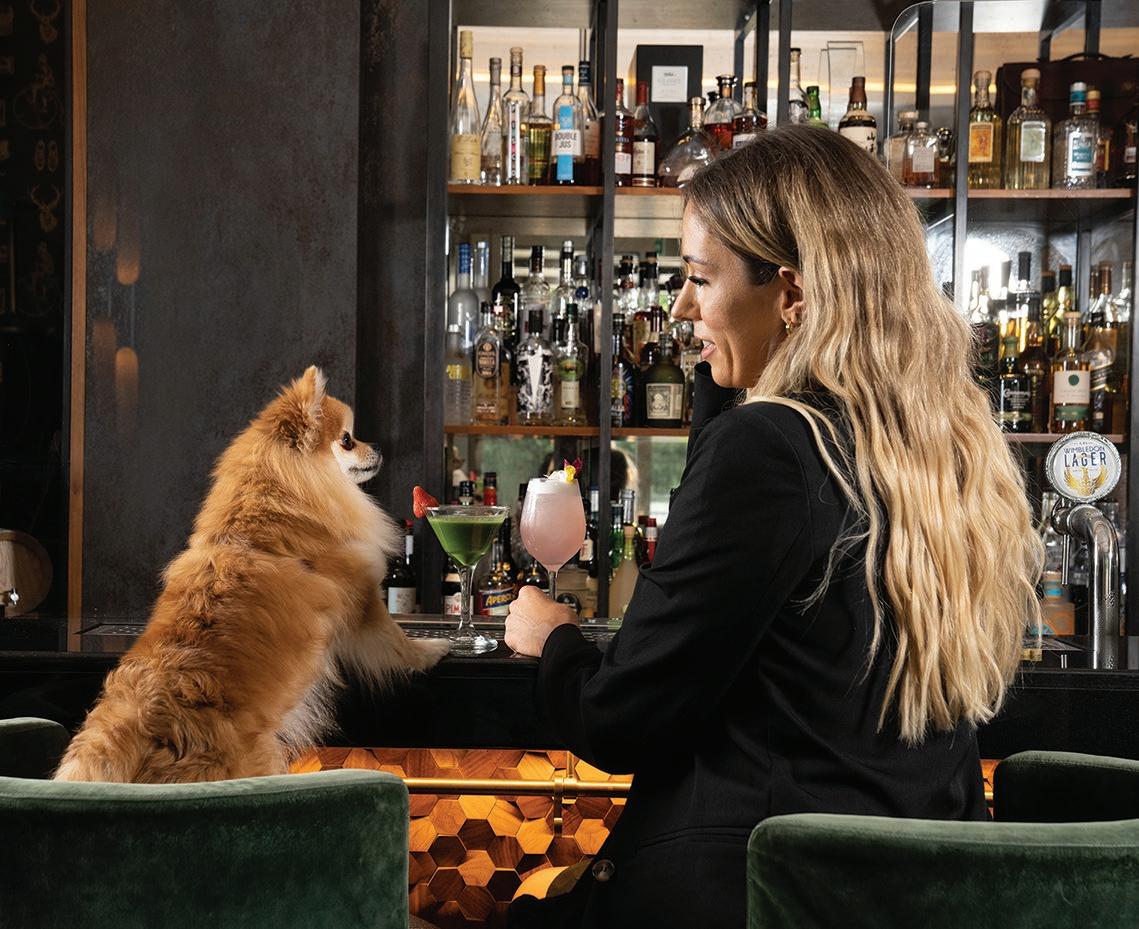
Designed for those autumn days and nights when we all want comfort food, the new Loaded Fries menu offers all the favourites for us humans, and can be paired with a drink too. There's Fish ’n’ Chips with a Crafty Paloma cocktail, Steak ’n’ Chips with a glass of Valpolicella Red wine, or Curry ’n’ Chips with the bar's signature lager.
Meanwhile, for our furry friends there's...wait for it...
Pedigree Chips, a "tasty treat of steamed sweet potato fries loaded with delicious chicken breast and tenderstem broccoliperfect for getting tails wagging".

Ironing is no fun at the best of times, let alone after a transatlantic flight. That's why we were delighted to hear about the magic wardrobes now installed in select rooms at the Henn na Hotel in New York City.
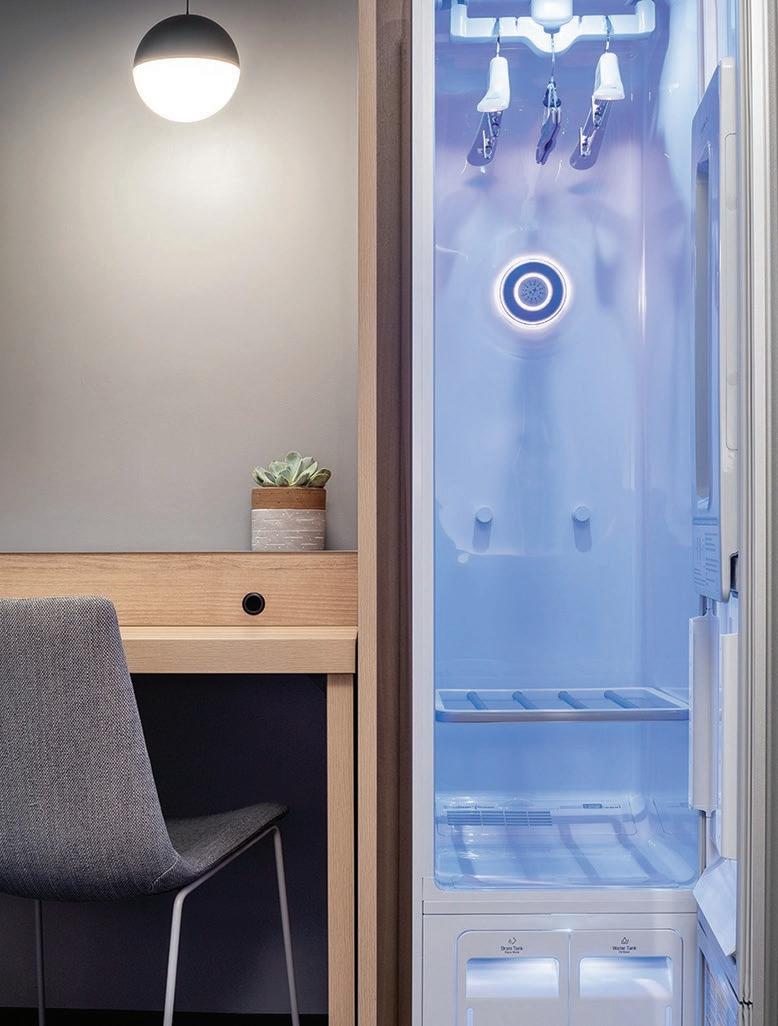
Called LG Stylers, not only do they steam the creases out of your shirts, skirts, jackets or trousers, they freshen them too, removing allergens, dust, smoke and sweat.
All you have to do is unpack your bag, hang up your clothes, wait 40 minutes and hey presto (or should that be pressed-o, get it?).
You can buy them online too, for £1,649. Dear Santa...
And if your hungry mut isn't happy with just a bowl of water, you can order them a 'Posh Pooch' wine or the 'Hound’s Hops', a blend of speciallybrewed dog beer to round off their doggy dinner. Barking mad!
The average British holidaymaker spends more than half a day of a two-week holiday connected to the internet, according to a survey by travel insurance provider
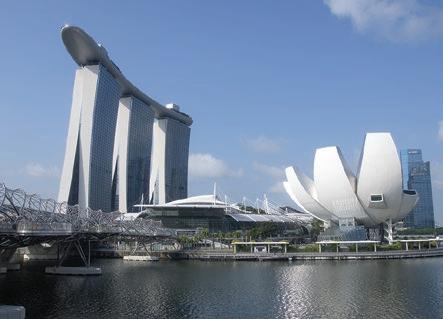
Staysure. But only 11% of us are online to catch up with work. Instead, 49% are posting sunset selfies on Facebook or Instagram and 42% are checking the weather forecast, just to make sure it’s better than it is back at home.



















